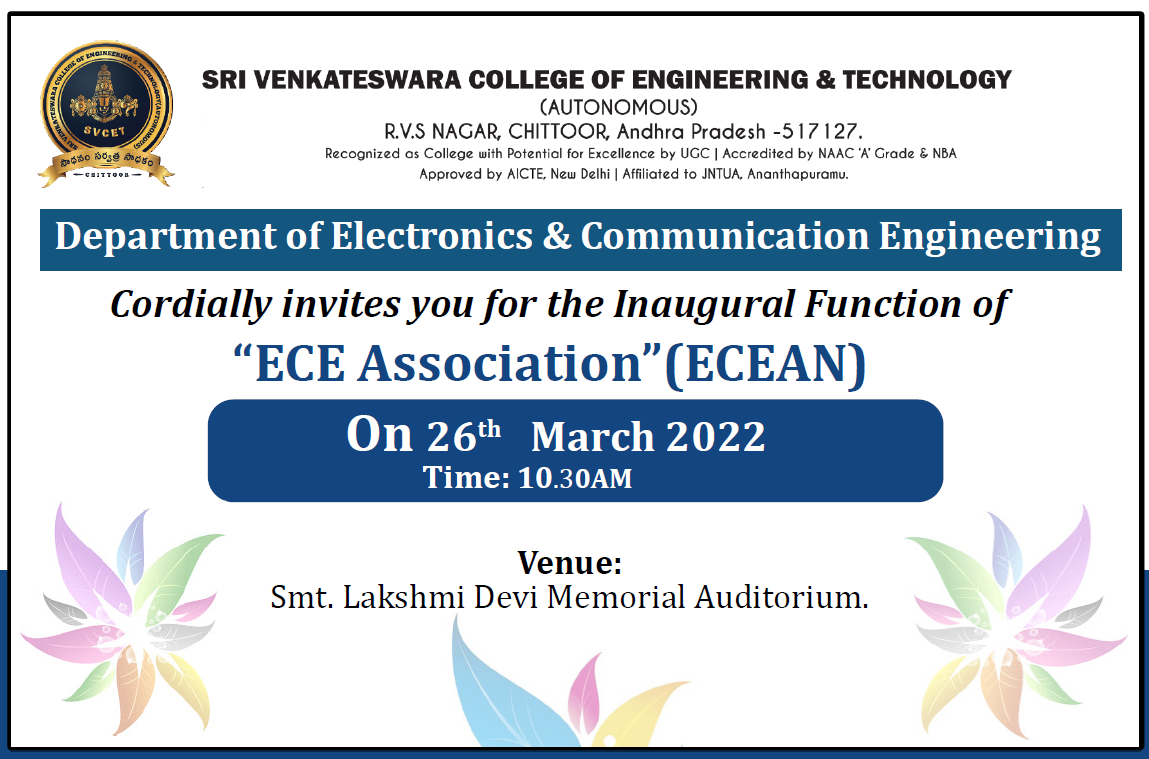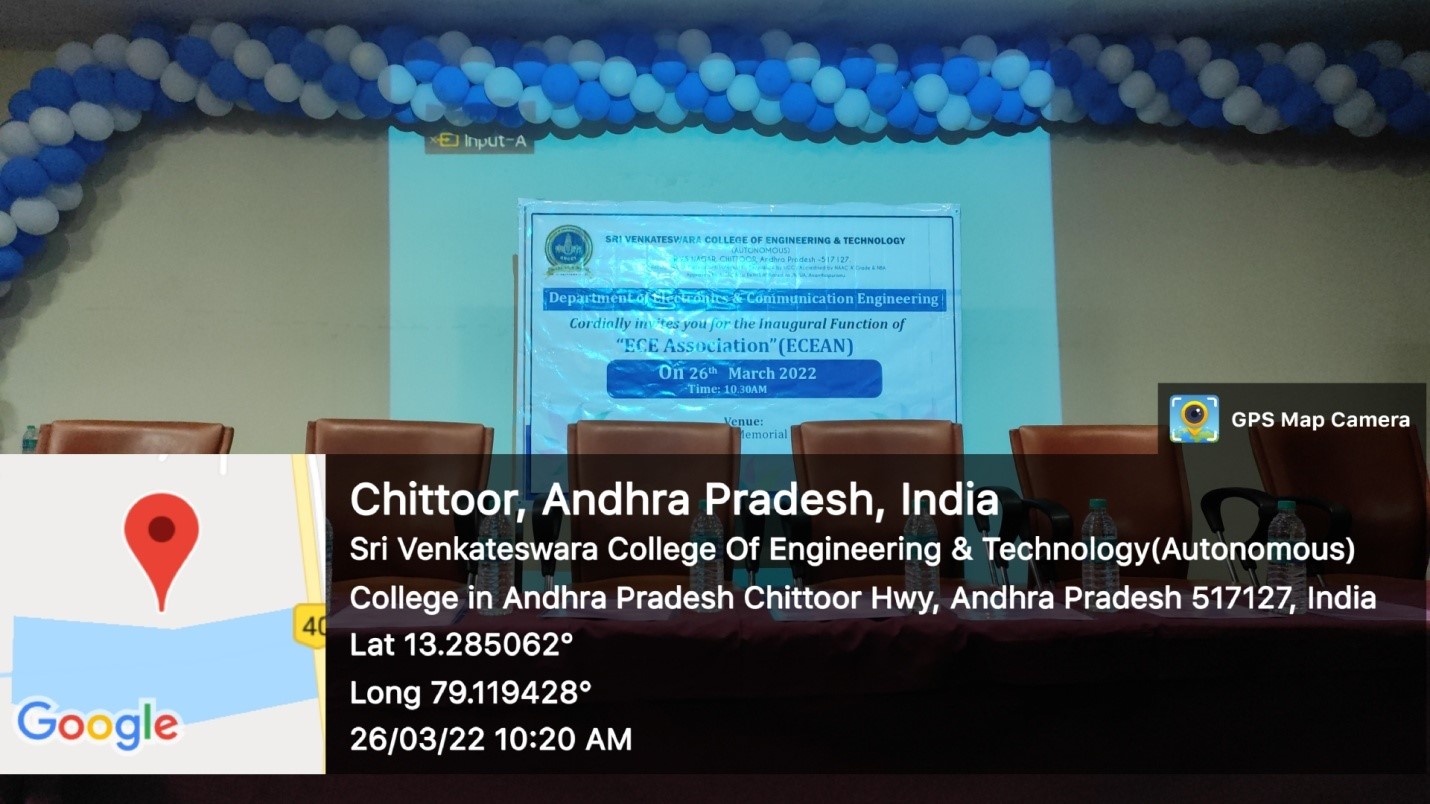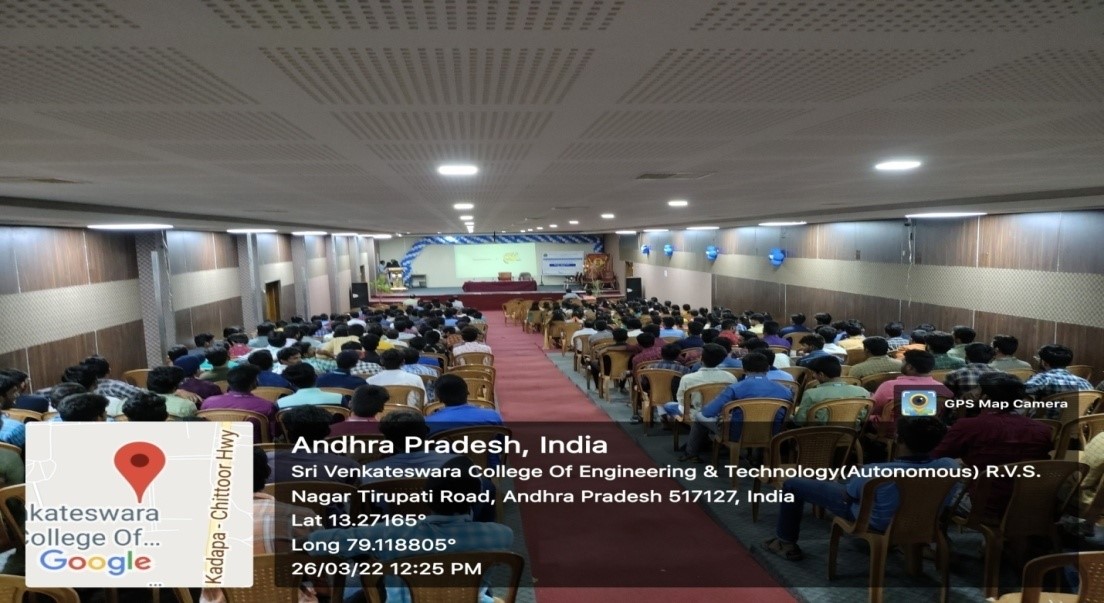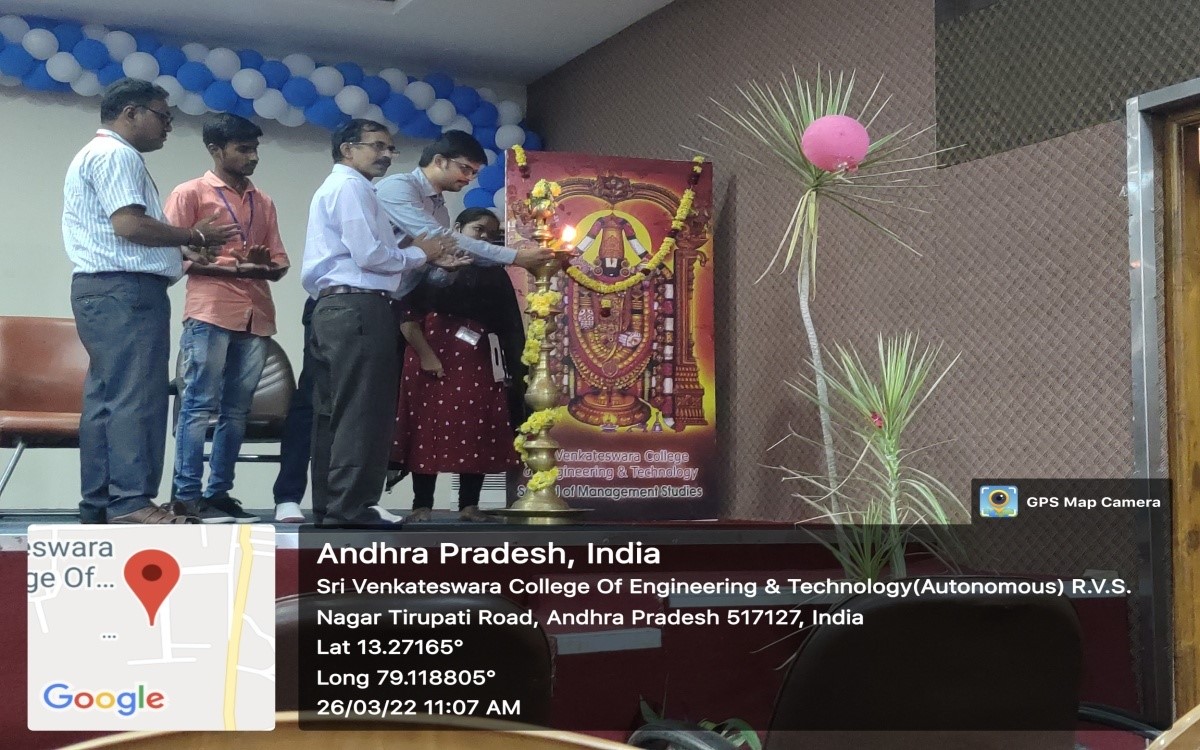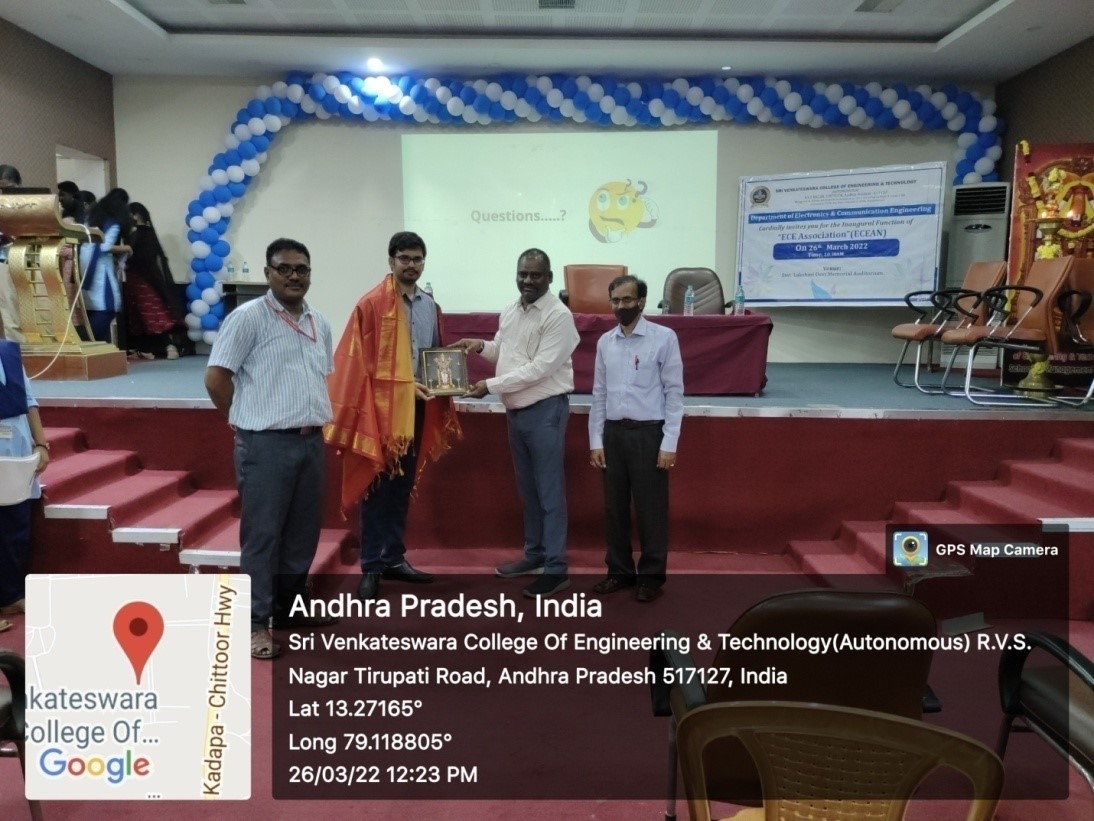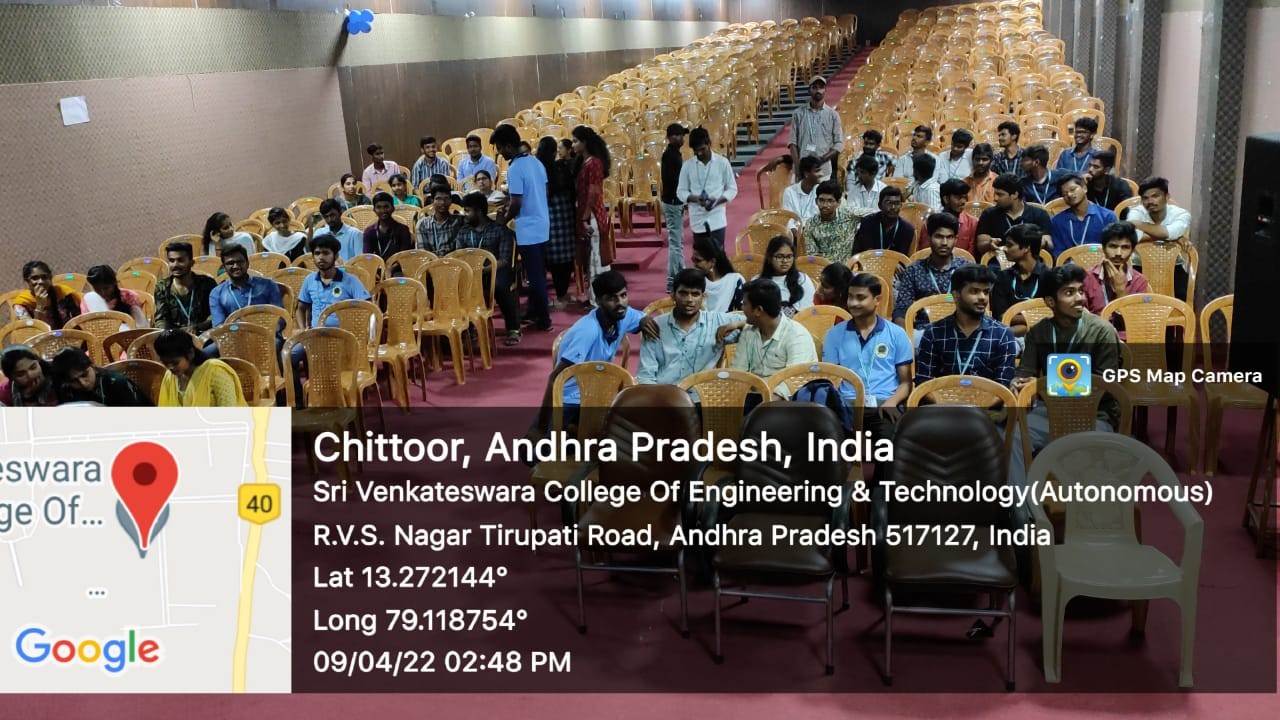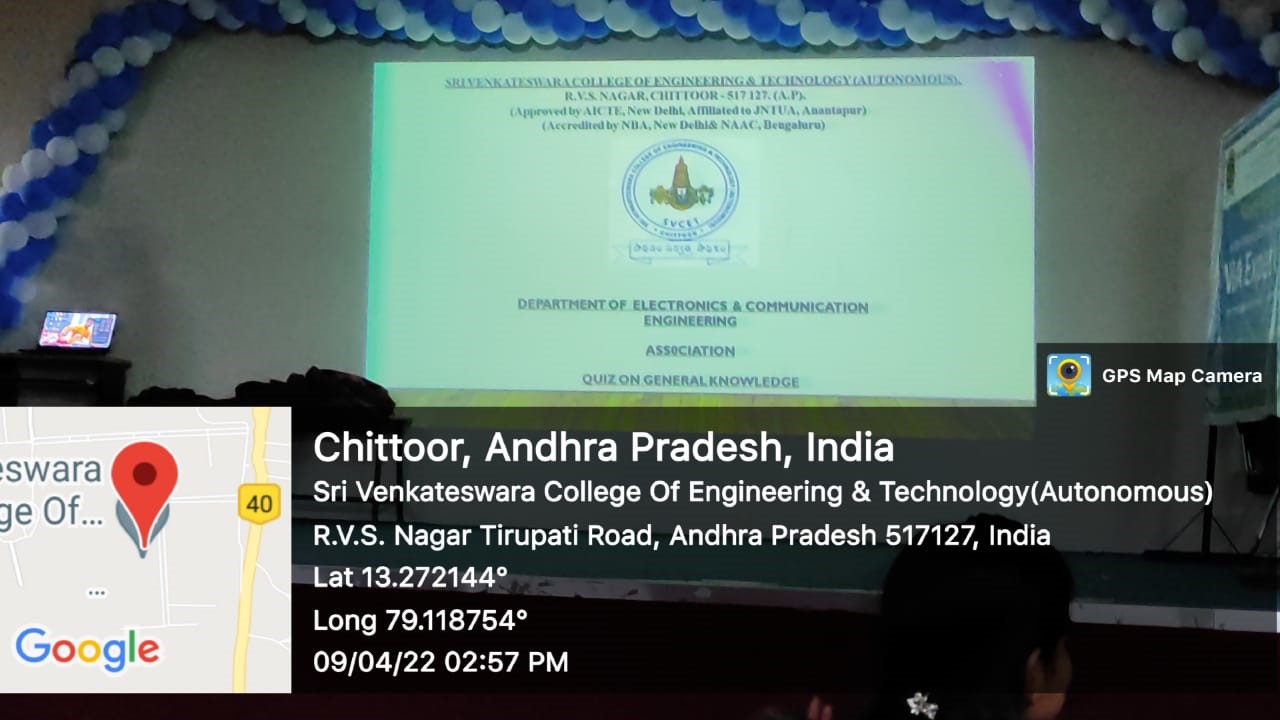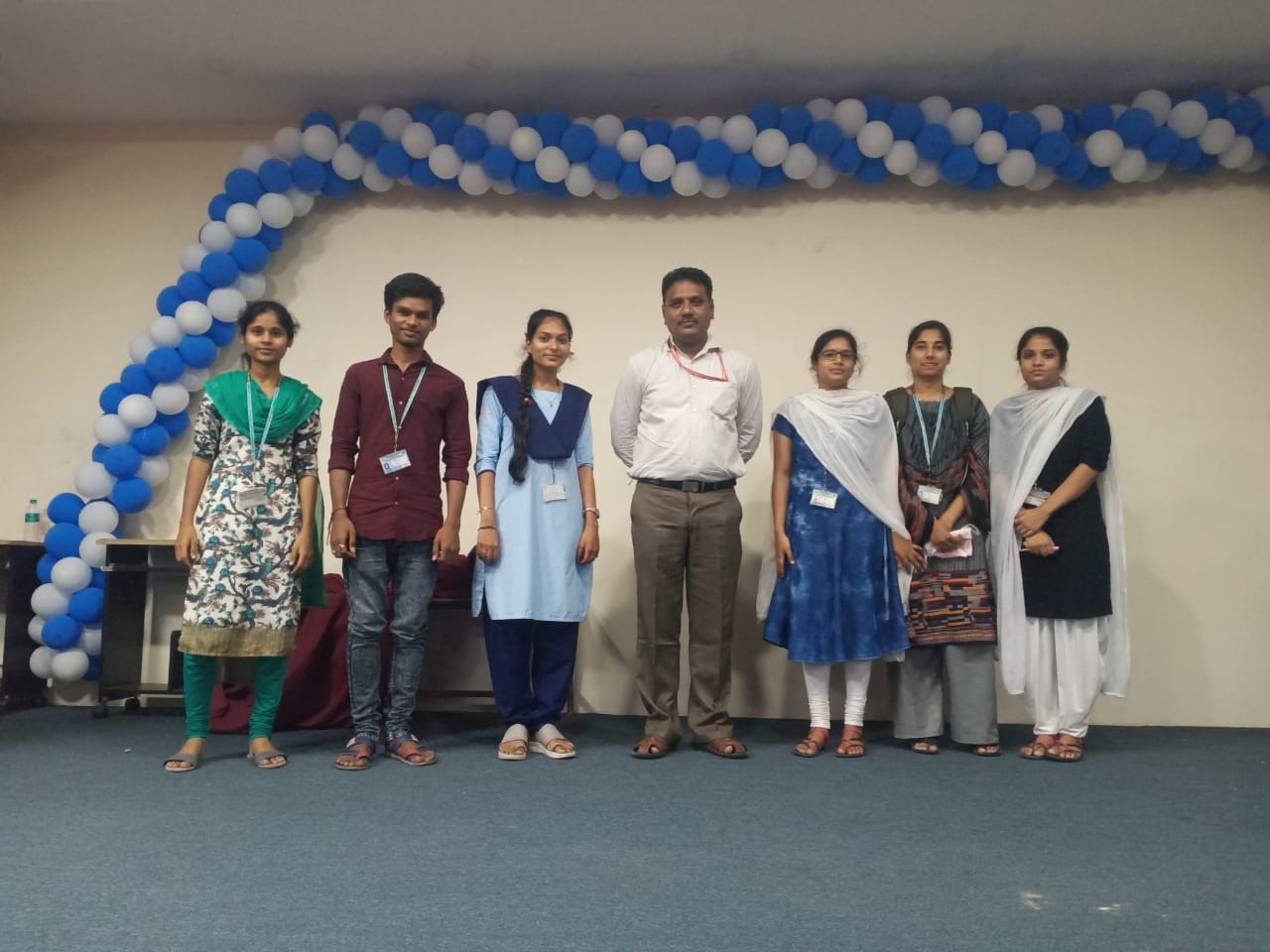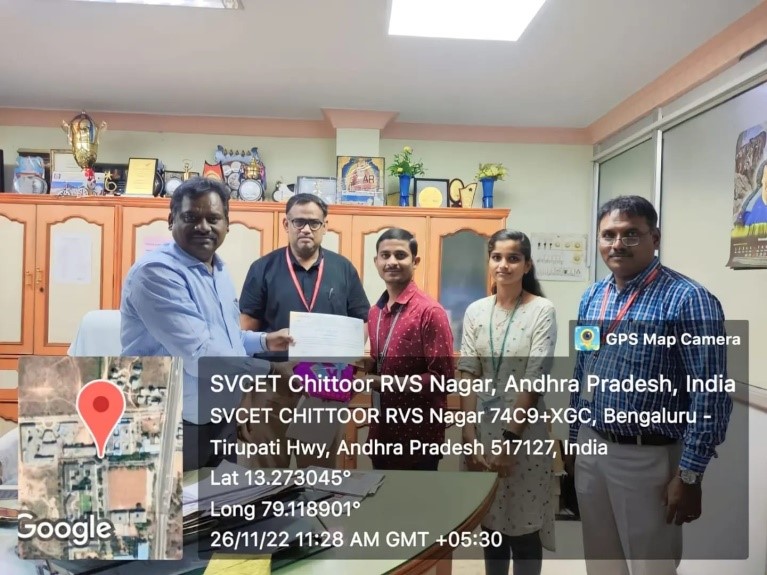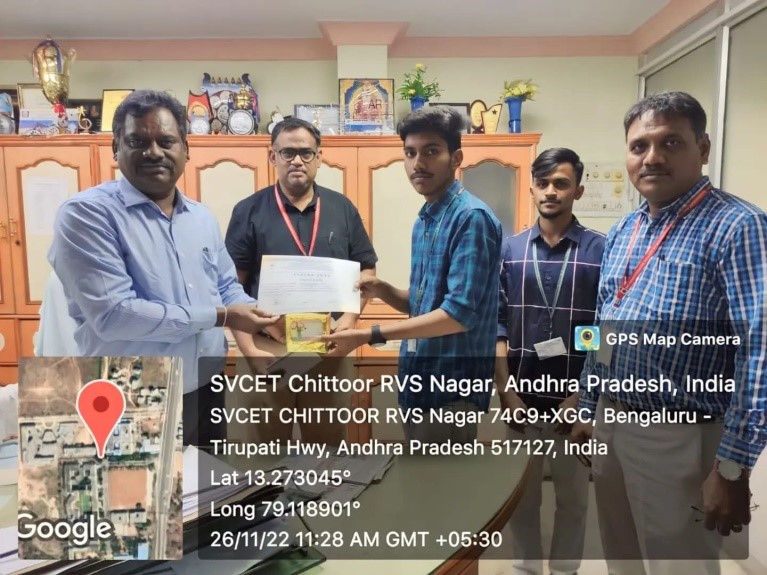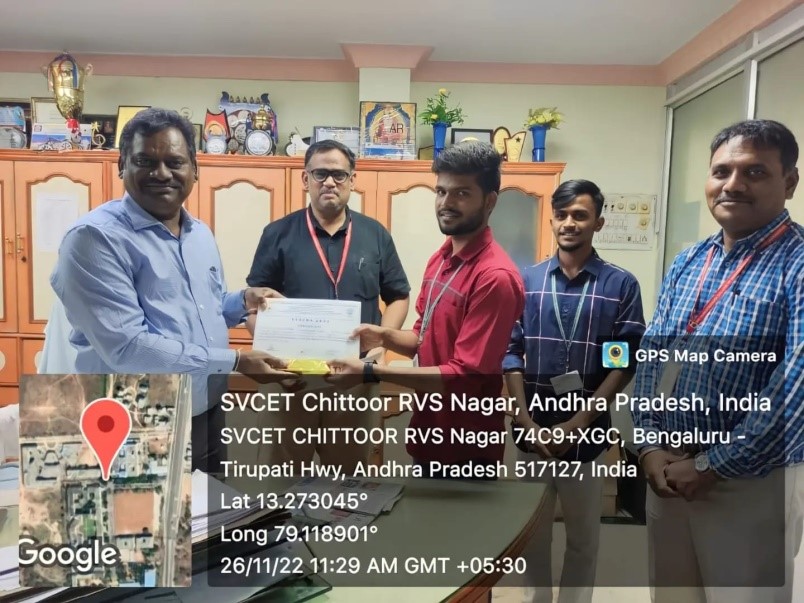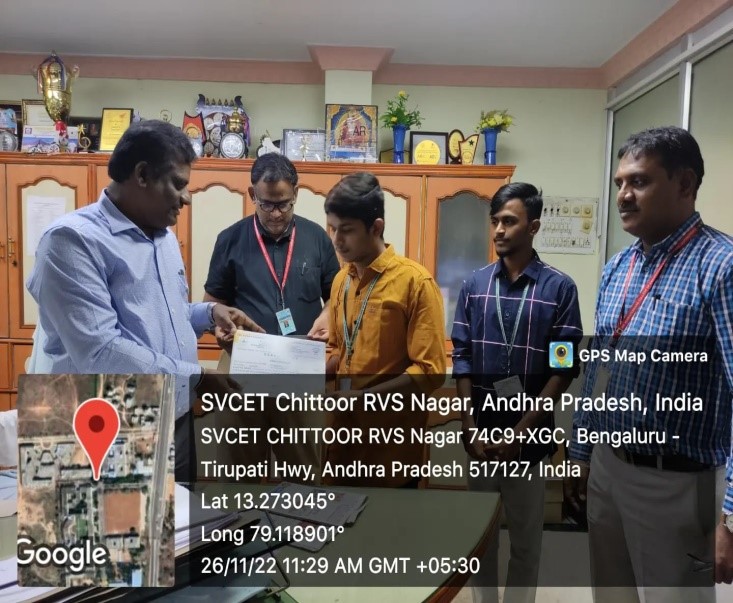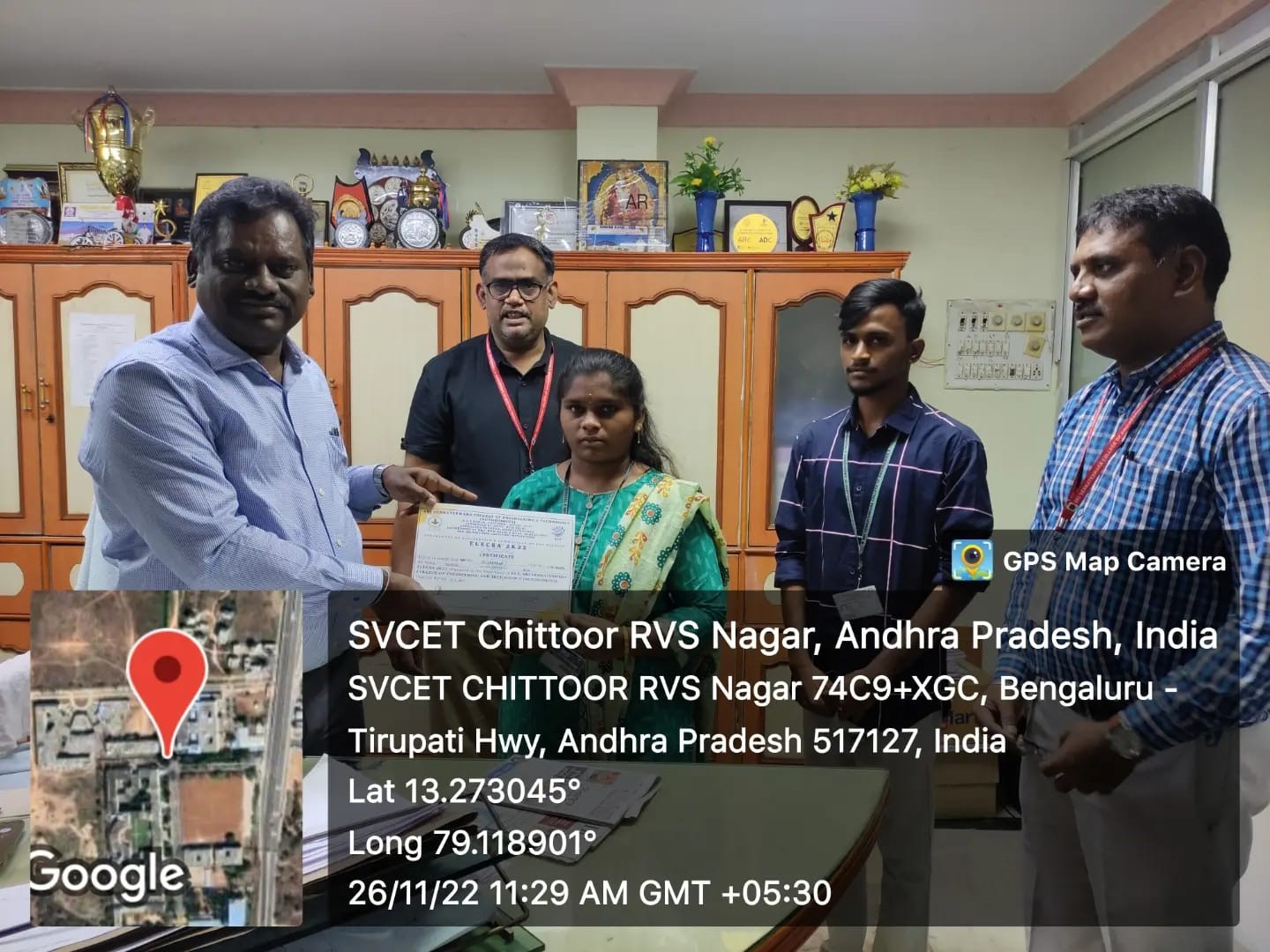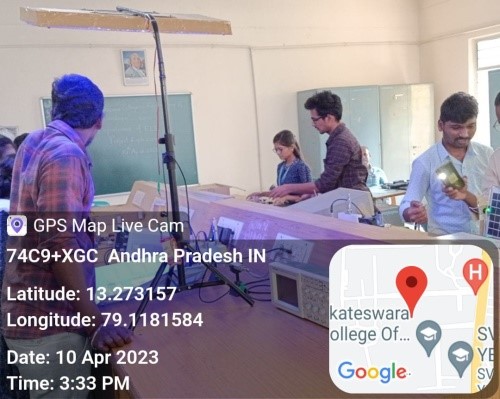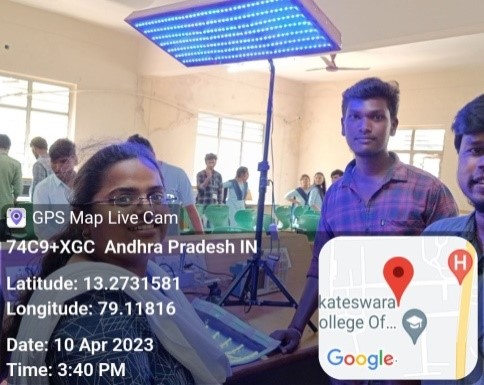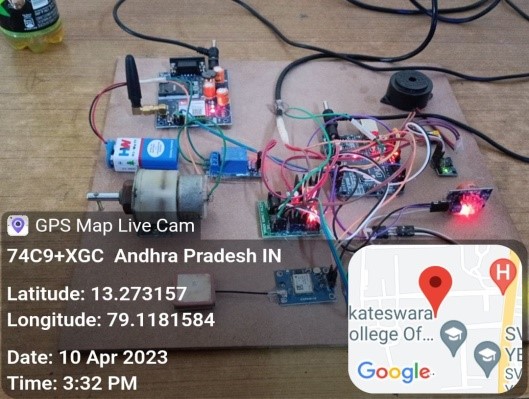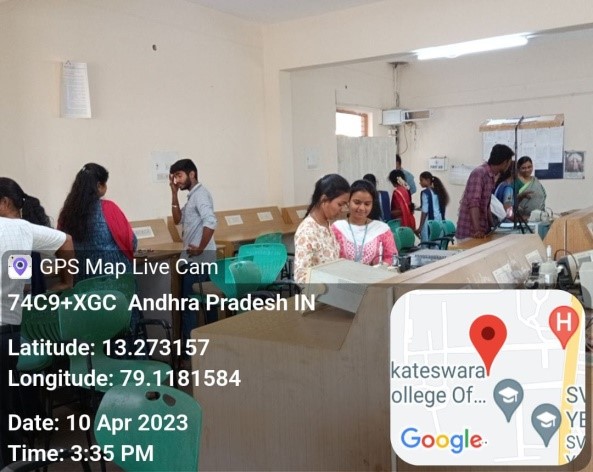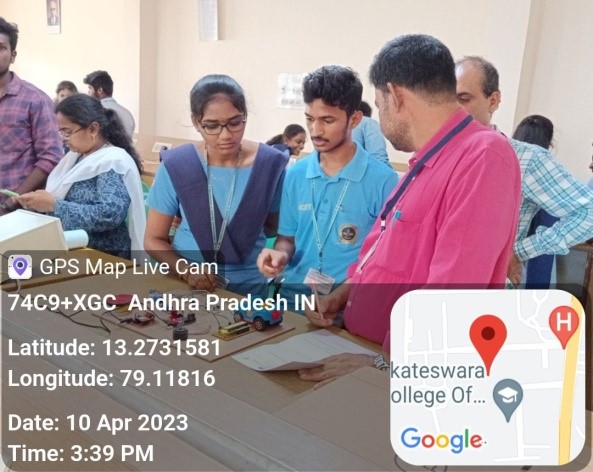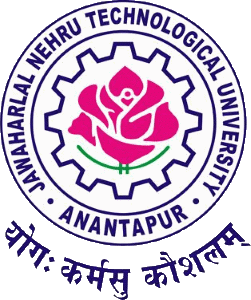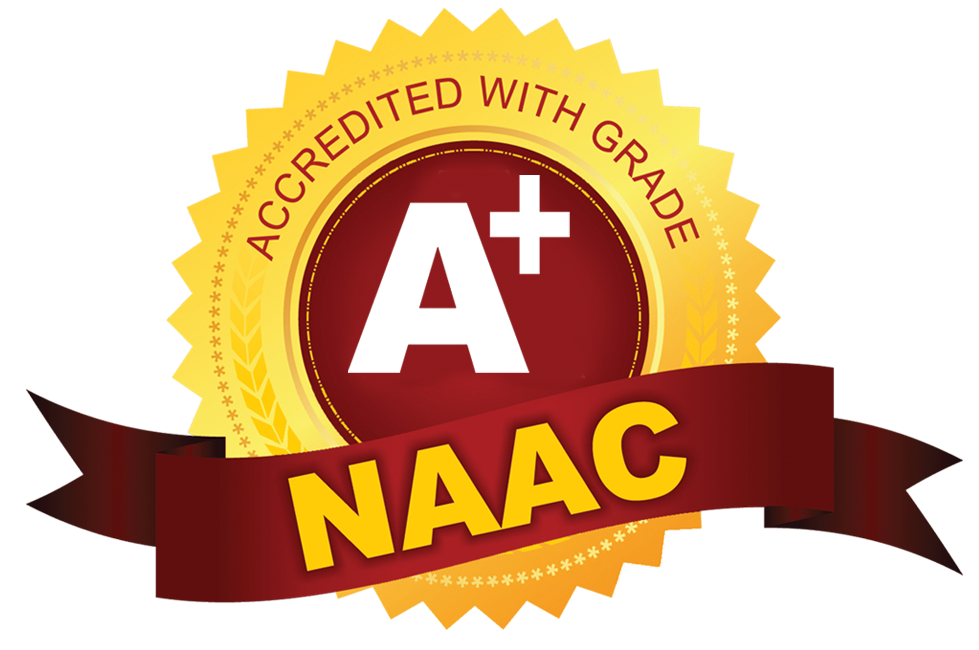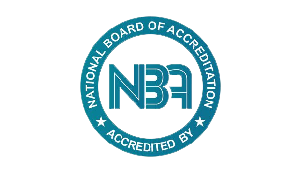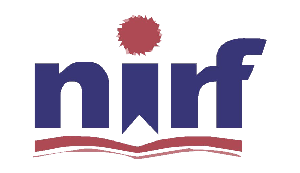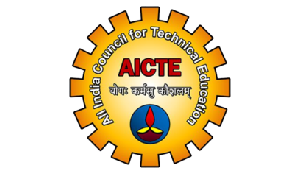ECE Department
Department of Electronics and Communication Engineering
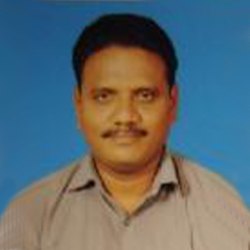
Dr. D. Srihari
HOD & PROFESSOR
Ph.D
Department Profile
Sri Venkateswara College of Engineering and Technology, is a leading technical Institution in India located at Chittoor, Andhra Pradesh. Department of Electronics and Communication Engineering having academic autonomy of having its own syllabus and curriculum. It offers undergraduate, postgraduate in various disciplines of Electronics and Communication Engineering. The Department of ECE is accredited by NBA under Tier -I in 2015, New Delhi, and NAAC with A+ Grade.
The department started with an initial intake of 40 students in UG Program in ECE in the year 1998 and the intake is enhanced to 60 in the year 2000, 90 in the year 2002, 120 in the year 2005, 180 in the year 2012, 240 in the year 2016 and increased to 300 in the year 2024. In 2008, the department introduced a PG Program in “VLSI Design”. The department started a new course Bio-Medical Engineering with an intake of 60 in the year 2023.
Our Objectives
- Leading in All Respects to Communicate People with Latest Technologies
- Electronics and Communication Engineering graduates find opportunities in the terrestrial and extra terrestrial communication systems like telephones, cellular phones, television, optical fiber communication, VLSI, Embedded Systems, consumer and entertainment devices where most of them need Electronics Engineers.
- To inculcate a spirit of scientific temper, analytical thinking and train the students in contemporary technologies in Electronics & Communication to meet the needs of the industry.
- The Department is equipped with 12 labs, 4 advanced labs, departmental computer centre, departmental library, classrooms with modern teaching aids and staff rooms. The laboratories include the Electronics, Devices and Circuits Lab, Analog Electronic Circuits, Digital & Integrated Circuits Labs, Communication, Fiber Optic & Microwave Engineering Labs, Signal Processing & Controls Lab, and Microprocessor & Interfaces & Projects Lab.
Department Strengths
- ✔ Equipped with 12 labs, 4 advanced labs, departmental computer centre, departmental library, classrooms with modern teaching aids and staff rooms.
- ✔VLSI Design Centre established jointly with Portal Player Private Limited
- ✔Advanced Data Communications & Computer Network Lab established under CISCO Local Academy Programme
- ✔MAT – Lab
- ✔Embedded Systems Lab
- ✔AR & VR Lab
Courses Offered
| Level | Course | Intake |
|---|---|---|
| Diploma | Electronics and Communication Engineering (DECE) | 60 |
| Under Graduate | Electronics and Communication Engineering (B.Tech), Bio-Medical Engineering (ECE) |
300
60 |
| Post Graduate | VLSI Design (M.Tech) | 9 |
Vision and Mission
🎯 Vision
To become a centre of excellence in the field of electronics and communications offering higher order of learning and conducting contemporary research thereby producing globally competitive and ethically strong engineering professionals.
🚀 Mission
Establish a scintillating learning environment to produce quality graduates with passion for knowledge and creativity in the field of Electronics and Communication Engineering.
Impart quality education through periodically updated curriculum to meet the challenges of the industry and research at the global level.
Enhancing employability of the students by providing skills through comprehensive experiential learning.
Developing professional etiquette and ethical integrity among the students to face real-time life challenges.
Empower the faculty through continuous training in domain, research and pedagogy for enhancing learning outcomes of the students and Research output.
Programme Outcomes (POs)
| PO Code | Objective |
|---|---|
| PO-1 | Engineering knowledge: Apply the knowledge of mathematics, science, engineering fundamentals, and an engineering specialization to the solution of complex engineering problems. |
| PO-2 | Problem analysis: Identify, formulate, review research literature, and analyze complex engineering problems reaching substantiated conclusions using first principles of mathematics, natural sciences, and Engineering sciences |
| PO-3 | Design/development of solutions: Design solutions for complex Engineering problems and design system components or processes that meet the specified needs with appropriate consideration for the public health and safety, and the cultural, societal, and environmental considerations. |
| PO-4 | Conduct investigations of complex problems: Use research-based knowledge and research methods including design of experiments, analysis and interpretation of data, and synthesis of the information to provide valid conclusions. |
| PO-5 | Modern tool usage: Create, select, and apply appropriate techniques, resources, and modern engineering and IT tools including prediction and modeling to complex engineering activities with an understanding of the limitations. |
| PO-6 | The engineer and society: Apply reasoning informed by the contextual knowledge to assess societal, health, safety, legal and cultural issues and the consequent responsibilities relevant to the professional engineering practice. |
| PO-7 | Environment and sustainability: Understand the impact of the professional engineering solutions in societal and environmental contexts, and demonstrate the knowledge of, and need for sustainable development. |
| PO-8 | Ethics: Apply ethical principles and commit to professional ethics and Responsibilities and norms of the engineering practice. |
| PO-9 | Individual and team work:Function effectively as an individual, and as a member or leader in diverse teams, and in multidisciplinary settings. |
| PO-10 | Communication: Communicate effectively on complex engineering Activities with the engineering community and with society at large, such as, being able to comprehend and write effective reports and design documentation, make effective presentations, and give and receive clear instructions. |
| PO-11 | Project management and Finance: Demonstrate knowledge and understanding of the engineering and management principles and apply these to one’s own work, as a member and leader in a team, to manage projects and in multidisciplinary environments. |
| PO-12 | Life-long learning: Recognize the need for, and have the preparation and ability to engage in independent and lifelong learning in the broadest context of technological change. |
Programme Educational Objectives (PEOs)
| PEO Code | Objective |
|---|---|
| PEO-1 | Utilize knowledge, skills, and resources to enrich professional careers to pursue higher studies in the electronics and communication engineering and allied areas. |
| PEO-2 | Develop entrepreneurship skills to achieve professional success with start-ups. |
| PEO-3 | Develop attitude in lifelong learning and practice the profession with Integrity and responsibility. |
Programme Specific Outcomes (PSOs)
| PSO Code | Objective |
|---|---|
| PSO-1 | Design and develop dedicated engineering circuits and systems using the concepts, principles and methodologies in electronics, communication and signal processing applications in relevance to industry and society. |
| PSO-2 | Use modern tools, techniques and methodologies to design, analyse and develop intelligent systems in VLSI, Embedded and modern Semiconductor technology for customized solutions. |
| PSO-3 | Appropriate principles and algorithms to implement secured communication systems for problem solving Using signals, images, information from radars and satellite, fiber optics, wired and wireless systems. |
ECE Faculty list
|
S.No |
Name of the Faculty |
Designation |
Qualification |
Experience (in Years) |
|
|
B.Tech ECE Faculty |
|||||
|
1 |
Dr. T. SOMASSOUNDARAM |
PROFESSOR |
Ph.D |
24 |
|
|
2 |
Dr. D. SRIHARI |
PROFESSOR |
Ph.D |
23 |
|
|
3 |
Dr. T. SESHAGIRI |
PROFESSOR |
Ph.D |
29 |
|
|
4 |
Dr. D. DAMODARAM |
PROFESSOR |
Ph.D |
22 |
|
|
5 |
Dr. J. SATHEESH KUMAR |
ASSOCIATE PROFESSOR |
Ph.D |
16 |
|
|
6 |
Dr. A. MAHESWARY |
ASSOCIATE PROFESSOR |
Ph.D |
18 |
|
|
7 |
Dr. P. BHUVANESWARI |
ASSOCIATE PROFESSOR |
Ph.D |
12 |
|
|
8 |
Dr. OM PRAKASH |
ASSOCIATE PROFESSOR |
Ph.D |
14 |
|
|
9 |
Mr. V. JAYACHANDRA NAIDU |
ASSOCIATE PROFESSOR |
M.Tech |
24 |
|
|
10 |
Mr. R. UDHAYAKUMAR |
ASSOCIATE PROFESSOR |
M.E |
15 |
|
|
11 |
Mr. K. MURUGANANDAM |
ASSOCIATE PROFESSOR |
M.Tech |
22 |
|
|
12 |
Mr. K. SIVAGURUNATHAN |
ASSOCIATE PROFESSOR |
M.E |
11 |
|
|
13 |
Mr. B. GOPINATH |
ASST PROFESSOR |
M.TECH |
10 |
|
|
14 |
Ms. G. GANGA |
ASSOCIATE PROFESSOR |
M.Tech |
11 |
|
|
15 |
Dr. S. JEEVITHA |
ASST PROFESSOR |
Ph.D |
03 |
|
|
16 |
Dr. D. NATHIYA |
ASST PROFESSOR |
Ph.D |
01 |
|
|
17 |
Dr. B. VIDYA |
ASST PROFESSOR |
Ph.D |
01 |
|
|
18 |
Dr. NIRMALA BAI .J |
ASSOCIATE PROFESSOR |
Ph.D |
15 |
|
|
19 |
Mr. M. RAVIKUMAR |
ASST PROFESSOR |
M.Tech |
06 |
|
|
20 |
Ms. K. PREETHI |
ASST PROFESSOR |
M.E |
06 |
|
|
21 |
Mr. P. SUBRAMANYAM |
ASST PROFESSOR |
M.Tech |
18 |
|
|
22 |
Ms. V. PRANAVABHARGAVI |
ASST PROFESSOR |
M.Tech |
11 |
|
|
23 |
Mr. N. CHIDAMBARAM |
ASST PROFESSOR |
M.E |
09 |
|
|
24 |
Mrs. V. PAVANI |
ASST PROFESSOR |
M.Tech |
03 |
|
|
25 |
Ms. D. VANI |
ASST PROFESSOR |
M.Tech |
06 |
|
|
26 |
Ms. M. CHAMINI |
ASST PROFESSOR |
M.Tech |
08 |
|
|
27 |
Ms. K. SAVITHA |
ASST PROFESSOR |
M.E |
05 |
|
|
28 |
Ms. A. RAJATHI |
ASST PROFESSOR |
M.E |
05 |
|
|
29 |
Ms. A. BLESSEY PRAISLIN |
ASST PROFESSOR |
M.E |
04 |
|
|
30 |
Mr. J. MADAN KUMAR |
ASST PROFESSOR |
M.E |
09 |
|
|
31 |
Mr. C. PURUSHOTHAM |
ASST PROFESSOR |
M.Tech |
08 |
|
|
32 |
Ms. K. CHANDRIKA |
ASST PROFESSOR |
M.Tech |
03 |
|
|
33 |
Mr. A. RAGHAVULU |
ASST PROFESSOR |
M.Tech |
11 |
|
|
34 |
Ms. K. BHARGAVI |
ASST PROFESSOR |
M.Tech |
03 |
|
|
35 |
Ms. A. HARITHA |
ASST PROFESSOR |
M.Tech |
03 |
|
|
36 |
Ms. M. LAVANYA VARSHINI |
ASST PROFESSOR |
M.Tech |
5 |
|
|
37 |
Ms. M. SUMATHI |
ASST PROFESSOR |
M.Tech |
06 |
|
|
38 |
Mr. E. VENKATESH |
ASST PROFESSOR |
M.Tech |
06 |
|
|
39 |
Mr. D. NANDHINI |
ASST PROFESSOR |
M.E |
04 |
|
|
40 |
Mr. V. HARI PRASAD |
ASST PROFESSOR |
M.Tech |
10 |
|
|
41 |
Mr. A. RAVINDIRAN |
ASST PROFESSOR |
M.E |
14 |
|
|
42 |
Mrs. S.LAVANYA |
ASST PROFESSOR |
M.Tech |
12 |
|
|
43 |
Mrs. SWETHA SARITA SARANGI |
ASST PROFESSOR |
M.Tech |
02 |
|
|
B.Tech ECE ( Bio-Medical Engineering) Faculty |
|||||
|
1 |
Dr. T. MUNIREDDY |
ASSOCIATE PROFESSOR |
Ph.D |
16 |
|
|
2 |
Ms. G. SREEPRIYA |
ASST PROFESSOR |
M.Tech |
06 |
|
|
3 |
Mr. T. NAGARAJU |
ASST PROFESSOR |
M.Tech |
12 |
|
|
4 |
Ms. A. ASWINIYA |
ASST PROFESSOR |
M.E |
06 |
|
|
5 |
Mr. S. PADMANABAN |
ASST PROFESSOR |
M.Tech |
08 |
|
|
6 |
Mr. P. PRABHU |
ASSOCIATE PROFESSOR |
M.E |
14 |
|
|
M.Tech VLSI Design (PG) Faculty |
|||||
|
1 |
Dr. SREEJITH L DAS |
PROFESSOR |
Ph.D |
23 |
|
|
2 |
Mr. S. NAGARAJ |
ASSOCIATE PROFESSOR |
M.E |
20 |
|
|
Diploma ECE faculty |
|||||
|
1 |
Ms. C. HARI PRABHA |
LECTURER |
B.Tech |
5 |
|
|
2 |
Mr. C. SOMESH KUMAR GUPTHA |
LECTURER |
B.Tech |
5 |
|
|
3 |
Mr. YERRABALLI B.REDDY |
LECTURER |
B.Tech |
2 |
|
|
4 |
Mr. A. PRAVEEN KUMAR |
LECTURER |
B.Tech |
2 |
|
|
5 |
Ms. K. LEENASREE |
LECTURER |
B.Tech |
7 |
|
|
6 |
Ms. V. REVATHI |
LECTURER |
B.Tech |
2 |
|
|
7 |
Mrs. S. NOUHEER |
LECTURER |
B.Tech |
11 |
|
Faculty Publications
Dr. T. SOMASSOUNDARAM
1Dr. T.Somassoundaram, R.Sreeja, "Hybrid Power Optimization strategies for Reconfigurable ALUs ", International Journal of Creative Research Thoughts, July 2024.
2T.Somassoundaram, Om Prakash, Amrita Rai, Saumya Das, Yatindra Gopal, Hare Ram Singh, " Minimization of Fuel Cost for Generator Systems with valve Point Effect using Modified PSO”, Franklin Open, April 2024.
Dr. D. SRIHARI
1Dr. D. Srihari, Dr. S. Jeevitha, Dr. T. Chandra Sekhar Rao, Dr. D. Himabindu, Mr. Madhu G.C, “Object Recognition using Machine learning” Journal of Electrical Systems” J.Electrical sysems 20-3 (2024):4959-4966
2D.Srihari, T.Chandra Sekhar Rao, T.Venkataramana, D.Himabindu, "Face Recognition Using Vision and CNN Algorithm”, Int.Jrnl of Intelligent Systems And Applications In Engineering, December 2023.
3D.Srihari, K.Hemavathi, P.Sreeveni, S.Roopa, V.Manasa, Y.Thejaswini, " Smart Home and Thief Detection using AI”, Int.Jrnl of Advanced Research in Science, Communication and Technology, June 2024.
4D.Srihari, N.Swathi,O.Bhavya,S.Nazuma,S.Basha,P.Javeed," Eco-Friendly Monitoring and Management System for Electric Vehicle Charging Infrastructure”, Int.Jrnl of Electrical and Electronics Research, June 2024.
5D.Srihari, K.Hemavathi, P.Sreeveni,S.Roopa,V.Manasa,Y.Thejaswini, " Smart Home and Thief Detection using AI”, Int.Jrnl of Advanced Research in Science, Communication and Technology, June 2024.
6D.Srihari, P.Bhuvaneswari, D.Himabindu,P.Sasi Kiran," Current Mirror And Currenr Limiter Based High Performance Voltage Level Shifter”, Futuristic Trends in Networks & Communication Technologies, March 2024.
7D.Srihari, T.Muni Reddy, R.Ranjani, J.Jean Jenifier Nesam," Tumor Detection and Classification by Deep Wavelet Auto-Multiplexer Model”, AIP Conference Proceedings, October 2023.
8D.Srihari, Debanjan Sarkar, S.Nagaraj,P.Bhuvaneswari, “Implementation of RoF with MSK Modulation”, FAIP Conference Proceedings, October 2023.
9D.Srihari, T.Muni Reddy, Debanjan Sarkar, P.K.Ananad Prem, “An Optical Millimeter Wave Generation using Mach Zender Modulator Based on 40 and 60GHz from Microwave Frequency”, AIP Conference Proceedings, October 2023.
10D.Srihari, P.V.V.Kishore, D.Anil Kumar, P.Praveen Kumar, N.Sasikala, L.Divyasree, “Machine Interpretation of Ballot Dance: Alternating Wavelet Spatial and Channel Attention Based Learning Model”, IEEE Access, April 2024.
11D.Srihari, S.Nagaraj, P.K.Anand Prem, Gopi, “ Design and Analysis of Half Adder and Full Adder Using GDI Logic”, Journal of Pharmaceutical Negative Results, September 2022.
12D.Srihari, Design And Analysis Of 32-Bit Reversible ALU For Low Power Applications, Semiconductor Optoelectronics, Aug, 2023
Dr. J. SATHEESH KUMAR
1J.Satheesh Kumar, Solar Tracking System Using Arduino International Journal of Novel Research and Development (IJNRD) 2023.
2J.Satheesh Kumar, Om Prakash, Amrita Rai, Amit Ranjan, Yatindra Gopal, " Effective Bitstream Compression Approaches for High Speed Digital Systems”, e-Prime - Advances in Electrical Engineering, Electronics and Energy, August 2023.
3J.Satheesh Kumar, Accident Prevention Using IR Sensors International Journal of Novel Research and Development (IJNRD) 2023.
4J.Satheesh Kumar, Charge a Mobile through Wireless Power Bank International Journal of Novel Research and Development (IJNRD) 2023.
4J.Satheesh Kumar, Advanced Driver Monitoring System Using Machine Learning International Research Journal of Modernization in Engineering Technology and Science, May 2024
Dr. A. MAHESWARY
1A.Maheswary, S.Nagendram, K.Uday Kiran, S.Hasane Ahammad, P.Poorn Priya, Md.Amzad, Rashed, "Intelligent Crop Recommender System for Yield Prediction Using Machine Learning Strategy”, Jrnl.of Institution of Engineers, March 2024.
2A.Maheswary, K.Jeevan Kumar, D.Sukumar, K.Deva, Chaithanya, Lokesh, Yugandhar, "Accident Information System Using GPS & GSM And Sensors”, Int.Jrnl.of Scientific Research in Science and Technology, April 2024.
3A.Maheswary, K.Jeevan Kumar, D.Sukumar, K.Deva, Chaithanya, Lokesh, Yugandhar, "Heart Attack Detection and Heart Rate Monitoring Using IoT”, Int.Jrnl.of Scientific Research in Science and Technology, April 2024.
4A.Maheswary, N.Swaroop Kumar, K.S.Ramesh, R.Revathi, " CSINR:Intterconnected Nodes Reading for Accurate GPS Precision and Mapping to Achieve Geographic Centric Self-Learning Nodes”, Int.Jrnl.of Special Education, December 2022.
5A.Maheswary, A Novel CSINR Technique for Accurate and Precise GPS Communication By Geographical Centric Self-Learning Nodes, Scalable Computing, Practices and Experience, 2023
6A.Maheswary, Encryption with DNA: The manipulation of DNA to deal with the Cyber Security attacks, ECS Transactions, 2022
Dr. OM PRAKASH
1T.Somassoundaram, Om Prakash, Amrita Rai, Saumya Das, Yatindra Gopal, Hare Ram Singh, " Minimization of Fuel Cost for Generator Systems with valve Point Effect using Modified PSO”, Franklin Open, April 2024.
2Om Prakash, J.Satheesh Kumar, Amrita Rai, Amit Ranjan, Yatindra Gopal, " Effective Bit stream Compression Approaches for High Speed Digital Systems”, e-Prime - Advances in Electrical Engineering, Electronics and Energy, August 2023.
3Om Prakash, Hashinur Islam, Saumya Das, Tanweer Ali, Tanushree Bose, Sumana Kumari, Pradeep Kumar, "Bandstop Filter Decoupling Technique for Miniaturized Reconfigurable MIMO Antenna”, IEEE Access, February 2022.
4Om Prakash, Hashinur Islam, Saumya Das, Tanweer Ali, Tanushree Bose, Sumana Kumari, Pradeep Kumar, "A Frequency Reconfigurable MIMO Antenna with Bandstop Filter Decoupling Network for Cognitive Communication”, Sensors, September 2022.
5Om Prakash, Divya Sharma, Amrita Rai, Sunita Debbarma, Mukesh Kumar, Ojha, Vijay Nath, "Design and Optimization of 4-Bit Array Multiplier with Adiabatic Logic Using 65nm CMOS Technologies”, IETE Journal of Research, May 2023.
6Om Prakash, Yatindra Gopal, Y.N. Vijaya Kumar, Akanksha Kumari, Subrata Chowdhury, Abdullah, "Reduced Device Count for Self Balancing Switched – Capacitor Multilevel Inverter Integration with Renewable Energy Source”, Sustainability, May 2023.
7Om Prakash, Ziaul Haque, Ejaj Ahmed, "Reducing The Space of Interconnects In Chip Making”, Int.Jrnl of Electrical and Technology, August 2021.
8Om Prakash, Unmanned Aerial Vehicle Surveillance and Monitoring System Based on IoT”. Journal of Novel Carbon Resource Sciences & Green Asia Strategy, Vol. 11, Issue 04, October, 2024
Dr. P. BHUVANESWARI
1P.Bhuvaneswari ,D.Srihari, Debanjan Sarkar, S.Nagaraj, “Implementation of RoF with MSK Modulation”, AIP Conference Proceedings, October 2023.
2P.Bhuvaneswari, D.Srihari, D.Himabindu,P.Sasi Kiran," Current Mirror And Currenr Limiter Based High Performance Voltage Level Shifter”, Futuristic Trends in Networks & Communication Technologies, March 2024.
3P.Bhuvaneswari ,B.Rajasekhar, P.Nirmala, R.Radhika, S.Asha, K.R.Kavitha, Semagn Shifere Belay, “A Feasible Multimodal Photoacoustic Imaging Approach for Evaluating the Clinical Symptoms of Inflammatory Arthritis”, Biomedical Research International, August 2022.
4P.Bhuvaneswari, S.Nagaraj, P.K.Anand Prem, M.Chamini, “Design and Comparison of 16X16 Reversible Vedic Multiplier using Different Adders”, Turkish Online Journal of Qualitative Inquiry, July 2021.
5P.Bhuvaneswari, Implementation of Solar Heat Energy and Adsorption Cooling Mechanism for Milk Pasteurization Application Adsorption Science & Technology 2023
6P.Bhuvaneswari, Implementation of Machine Learning Mechanism for Recognising Prostate Cancer through Photoacoustic Signal contrast media & molecular imaging 2023
7P.Bhuvaneswari, Power Quality Analysis of High-Voltage Gain Switched LC Z-Source Inverters Distributed Computing and Optimization Techniques 2023
8P.Bhuvaneswari, A Feasible Multimodal Photoacoustic Imaging Approach for Evaluating the Clinical Symptoms of Inflammatory Arthritis BioMed Research International 2023
8P.Bhuvaneswari, An efficient deep learning - Enabled blockchain - based IoT device - to - device authenication approach for smart city applications using 5G technology Concrrency and Computation - Practice and Experience Feb 2024
Mr. S. NAGARAJ
1S.Nagaraj, D.Srihari, Debanjan Sarkar, , P.Bhuvaneswari, “Implementation of RoF with MSK Modulation”, AIP Conference Proceedings, October 2023.
2S.Nagaraj, G.M.Sreerama reddy, S.Aruna Mastani, “Design and Analysis of Novel Fill Adder using ECRAAL”, Int.Jrnl of Computational and Experimental Science and Engineering, August 2023.
3S.Nagaraj, K.SaiKhyathi, K.Pavansai, “Design of Energy Efficient Reversible Full Adder and Ripple Carry Adder for Digital Computing Applications”, Intelligent Manufacturing and Energy Sustainability, August 2023.
4S.Nagaraj, D.Srihari, P.K.Anand Prem, Gopi, “ Design and Analysis of Half Adder and Full Adder Using GDI Logic”, Journal of Pharmaceutical Negative Results, September 2022.
5S.Nagaraj, P.Bhuvaneswari, P.K.Anand Prem, M.Chamini, “Design and Comparison of 16X16 Reversible Vedic Multiplier using Different Adders”, Turkish Online Journal of Qualitative Inquiry, July 2021.
Mr. V. JAYACHANDRA NAIDU
1V.Jayachandra Naidu, K.Ravi Kumar, P.S.Sreenivasa Reddy, Gayathri, Jahnavi, K.Rajeswari, “Analysis of statistical Estimtors and Neural Network Approaches for Speech Enhancement”, SciEnggJ, Jan 2024.
2V.Jayachandra Naidu, K.Ravi Kumar, P.S.Sreenivasa Reddy, Kavya, Joshitha, Rakesh, “Analysis of EEG signals for the detection of Epileptic Seizures using Feature Extraction”, SciEnggJ, Dec 2023.
3V.Jayachandra Naidu, K.Ravi Kumar, P.S.Sreenivasa Reddy, T.V.Preethika Lahari, J.Pruduvi, K.Kavya Sri, S.Dhanush, “ IoT Framework for Monitoring the Condition of the Roads”, Journal of Engineering Science and Technology, February 2023.
4V.Jayachandra Naidu, Design Strategies of Low Power voltage level shifter circuits for Multi Supply Systems, International Research Journal of Modernization in Engineering Technology and Science, Sept-2021
Dr. S. JEEVITHA
1S.Jeevitha, El Arrouch Tarik, Najiba El Amrani El Idrissi, D.Kumutha, Sudipta Das," A Compact Multi-Resonant Wide Band MIMO Antenna for 5G Communication Systems at mm-wave Band”, Journal of Nano and Electronic Physics, February 2023.
Mr. K. MURUGANANDAM
1K.Muruganandam, B.Karthik, B.Dharani Bharath, C.Naga Chandana, D.Chandu, "Design of Wireless Surveillance Robot with Motion Detection And Live Video Transmission”, Int.Jrnl of Novel Research And Development, April 2023.
Dr. T.MUNI REDDY
1T.Muni Reddy, D.Srihari, R.Ranjani, J.Jean Jenifier Nesam," Tumor Detection and Classification by Deep Wavelet Auto-Multiplexer Model”, AIP Conference Proceedings, October 2023.
2T.Muni Reddy, D.Srihari, Debanjan Sarkar, P.K.Ananad Prem, “An Optical Millimeter Wave Generation using Mach Zender Modulator Based on 40 and 60GHz from Microwave Frequency”, AIP Conference Proceedings, October 2023.
Dr. S. NARASIMMAN
1S.Narasimman, L.Balakrishnan, Z.C.Alex," Clad-Modified Fiber Optic Sensor Utilizing CdS Nanoflower as cladding for the detection of Ethnol”, Journal of Material Science :Materials in Electronics, August 2021.
Dr. P.K. ANAND PREM
1P.K.Anand Prem, S.Nagaraj, P.Bhuvaneswari, M.Chamini, “Design and Comparison of 16X16 Reversible Vedic Multiplier using Different Adders”, Turkish Online Journal of Qualitative Inquiry, July 2021.
2P.K.Anand Prem, Sreejith.L.Das,K.Gopi, “Generation of Frequency Sextupling in the Millimeter wave range using Lithium Niobate Mach Zehnder Modulator”, Journal of Critical Reviews, August 2020.
3P.K.Anand Prem, Arvind Chakrapani, “A Milimeter –Wave Generation Scheme Based on Frequency Octupling Using LiNbO3 Mach-Zehnder Modulator”, Material Science and Engineering, August 2020.
Dr. SREEJITH L. DAS
1Sreejith.L.Das, P.K.Anand Prem, K.Gopi, “Generation of Frequency Sextupling in the Millimeter wave range using Lithium Niobate Mach Zehnder Modulator”, Journal of Critical Reviews, August 2020.
Mrs. M. CHAMINI
1M.Chamini, P.K.Anand Prem, S.Nagaraj, P.Bhuvaneswari, “Design and Comparison of 16X16 Reversible Vedic Multiplier using Different Adders”, Turkish Online Journal of Qualitative Inquiry, July 2021.
Dr. Anand Prem P K
1 Frequency sextupling millimeter wave Generation by using lithium niobate mach zehnder modulator without and optical amplifier, IOP science- Materials Science and Engineering, Dec-2021
Dr. Debanjan Sarkar
1 Evolution of TDM-PON to WDM-PON Using Downstream MSK and Remodulated Upstream ASK, Springer Singapore-Optical and Wireless Technologies, Sep, 2022
Mr. S. Nagaraj
1 Design And Analysis Of Novel Full Adder Using Ecraal, Semiconductor Optoelectronics, Aug 2023
2 Design And Analysis Of 32-Bit Reversible ALU For Low Power Applications, Semiconductor Optoelectronics, Aug 2023
2 Design and Analysis of Half Adder and Full Adder Using GDI Logic Journal of Pharmaceutical Negative Results, Sep, 2022
Academic Year 2021 – 2022
Patents Acquired (2021-2022)
|
S.No. |
Name of the Faculty member and Patent Title |
Status |
|
1. |
Dr Ohm Prakash, Smart autonomous wheel chair for visually impaired persons, Application no:202011055422 A |
Published/ 01/01/2021 |
|
2. |
Dr. N. Vithyalakshmi The Design Of an internet of Things architecture in the cloud for preventing the diabetic foot |
Published/ 17/09/2021 |
|
3. |
Dr. T. Muni Reddy – A System for server driven data synchronisation in IoT connectivity and Method thereof |
Published / 06/08/2021 |
Patents Acquired (2022-2023)
|
S.No. |
Name of the Faculty member and Patent Title |
Status |
|
1. |
Dr.Om Prakash-Dual band helmet integrated stacked antenna for wireless communication |
Published / 14.02.2023 |
|
2. |
Dr.A.Maheswary- PWM Technique based switched-Capacitor Boost Multilevel Inverter Device |
Published / 17.02.2023 |
|
3. |
Dr.T.Somassoundaram- Dual band helmet integrated stacked antenna for wireless communication |
Published / 14.02.2023 |
|
4. |
Dr.Om Prakash - PWM Technique based switched-Capacitor Boost Multilevel Inverter Device |
Published / 17.02.2023 |
|
5. |
Dr.Sreejith.L.Das- Dual band helmet integrated stacked antenna for wireless communication |
Published / 14.02.2023 |
|
6. |
Dr.Sreejith.L.Das - PWM Technique based switched-Capacitor Boost Multilevel Inverter Device |
Published / 17.02.2023 |
|
7. |
Mr.S.Nagaraj-An asynchronous adiabatic ECRAAL full adder circuit |
Published / 07.06.2023 |
|
8. |
Dr.S.Narasimman - PWM Technique based switched-Capacitor Boost Multilevel Inverter Device |
Published / 17.02.2023 |
|
9. |
Dr.J.Satheesh Kumar - PWM Technique based switched-Capacitor Boost Multilevel Inverter Device |
Published / 17.02.2023 |
Patents Acquired (2023-2024)
|
S.No. |
Name of the Faculty member and Patent Title |
Status |
|
1. |
Dr D Srihari IOT BASED WEATHER MONITORING Design No: 410909-001 |
|
Ph.D's Awarded (2021-2022)
|
S.No |
Name of the Faculty |
Department |
Name of the University |
Year |
|
1. |
Dr. A. Maheswary |
ECE |
Veltech University, Chennai |
2021 |
Ph.D's Awarded (2022-2023)
|
S.No |
Name of the Faculty |
Department |
Name of the University |
Year |
|
1. |
Dr.D.Srihari |
ECE |
K L University, Vijayawada |
2022 |
Ph. D Guidance (2022-2023)
|
S.No |
Name of the faculty guiding Ph.D |
Total No. of Students |
|
1. |
Dr.Om Prakash |
02(one completed and one on going) |
Books published (2022-2023)
|
S.No |
Name of the faculty |
Title of the Book |
Name of Authors |
Publishers and ISBN |
Month & Year |
|
1. |
Dr.Om Prakash |
Programming on Microprocessor 8085 and Microcontroller - 8051 |
Dr. Kaushik D.K., Dr. Om Prakash, Dr. Saumya Das |
Ekaksh Publications - ISBN: 978-81-956192-2-1; 1st edition |
July, 2023 |
|
2. |
Mr.S.Nagaraj |
Digital Electronics |
Dr.D.Sri Hari & Mr.S.Nagaraj |
Scholars’ Press 978-620-5-52210-3 |
JUNE,2023 |
|
3. |
Dr.D.Sri Hari |
Digital Electronics |
Dr.D.Sri Hari &Mr.S.Nagaraj |
Scholars’ Press 978-620-5-52210-3 |
JUNE,2023 |
|
4. |
Mr.S.Nagaraj |
Basic Electronics |
Mr.S.Nagaraj&Mr.S.Senthil |
LAP LAMBERT Academic Publishing&978-620-6-15536-2 |
JUNE,2023 |
Book chapters (2022-2023)
|
S.No. |
Name of the Faculty |
Title of the Book |
Year & Month |
Names of Authors (as published) |
Publisher and ISBN |
|
1. |
Dr. Om Prakash |
Application of Machine Learning in Agriculture with Some Examples |
September,2022 |
Dr.Amrita Ray Dr.Om Prakash, |
Artificial Intelligence, Chapman and Hall/CRC & 9781003217237 |
|
2 |
Dr. Om Prakash |
Paradigms of Smart and Intelligent Communication, 5G and Beyond, Transactions on Computer Systems and Networks |
2023. |
Om Prakash, PrabinaPattanayak, Amrita Rai, and KorhanCengiz |
Publisher Springer https://doi.org/10.1007/978-981-99-0109-8_5 |
Book chapters (2023-2024)
|
S.No. |
Name of the Faculty |
Title of the Book |
Year & Month |
Names of Authors (as published) |
Publisher and ISBN |
|
1 |
Dr. D Srihari |
Current Mirror and Current Limiter Based High Performance Voltage Level Shafter (Book Chapter) |
March 2024 |
Dr. D Srihari Dr. P Bhuvaneswari |
Futuristic Trends in Network & Communication Technologies e-ISBN: 978-93-6252-368-6 |
Seminars / Conferences / Workshops organized by the department (2022-2023)
|
S.No. |
Workshop / Seminar / Conference |
Date & Year |
|
1. |
Five Days Faculty Development Programme on “Recent Trends in VLSI and Signal Processing” organized by department of ECE. |
24-07-2023 to 28-07-2023 |
|
2. |
seminar on “Nano Satellite Design- A Commner Space Step Initiative”organized by department of ECE |
06-06-2023 |
|
3. |
seminar on “Bluetooth and Mobile IP”organized by department of ECE |
29-04-2023 |
|
4. |
Three days Seminar on “Nanotechnology” |
09-03-2022 to 11-03-2022 |
|
5. |
Seminar on “Intellectual Property Rights & Innovations” |
05-01-2022 t0 07-01-2022 |
Seminars / Conferences / Workshops organized by the department (2023-2024)
|
S.No. |
Workshop / Seminar / Conference |
Date & Year |
|
1. |
Python Programming |
05.11.2024 to 28.11.2024 |
|
2. |
"Embedded & Automotive" by Echo Brains Private Technologies Private Limited, Bangalore |
Phase–I: 18th to 24th September 2024, |
Webinars and E Conferences organized (2021-2022)
|
S.No. |
Webinars and E Conferences |
Date & Year |
|
1. |
National Level Webinar on Introduction to Machine Learning, organized by department of ECE |
06.08.2021 |
|
2. |
Webinar on Circuit design using Multisim, organized by department of ECE |
05.07.2021 to 09.07.2021 |
|
3. |
Webinar on smart sensor transform health care system organized by department of ECE |
03.07.2021 |
Webinars and E Conferences organized (2022-2023)
|
S.No. |
Webinars and E Conferences |
Date & Year |
|
1. |
Webinar on “How to do R&D and Impacts of Chat GPT” organized by department of ECE |
17-06-2023 |
|
2. |
seminar on “Web Scraping Using Python” organized by department of ECE |
25-05-2023 |
|
3. |
webinar on“E-Mobility-Driving in Future” organized by department of ECE |
02-05-2023 |
|
4. |
webinar on “VLSI Career Opportunities in Electronics Field organized by department of ECE |
29-04-2023. |
|
5. |
webinar on “Data Science Theory for Time Series Data and It’s Applications” organized by department of ECE |
31-03-2023 |
|
6. |
One Day Webinar on “Patch Antenna Design” organized by department of ECE |
21-11-2022 |
|
7. |
One Day Webinar on “5G And Beyond” organized by department of ECE |
24-12-2022 |
Seminar/ Workshop / Faculty Development Program (2023-2024)
|
Sl. No |
Faculty Name & Department |
Seminars / Conferences / Workshops attended |
Month & Year |
|
1 |
Mr. S. Nagaraj |
2nd International Conference on Advances in Signal Processing, VLSI, Communication, and Embedded Systems |
Feb 2024 |
|
2 |
Mr. S. Nagaraj |
5th International Conference on Smart Electronics and Communication (ICOSEC 2024) organized by Kongunadu College of Engineering and Technology Trichy, TamilNadu, India |
Sep 2024 |
Seminar/ Workshop / Faculty Development Program (2022-2023)
|
Sl. No |
Faculty Name & Department |
Seminars / Conferences / Workshops attended |
Month & Year |
|
1. |
Mr. K. Muruganandam, ECE |
one week online a faculty Development Programme on “Antennas for 5G Communications & beyond organized by the Department of Electronics &Comminication Engineering, Aditya Engineering College |
03-06-2023 to 08-06-2023 |
|
2. |
Dr. P. Bhuvaneswari, ECE |
One day Faculty Development Programme on “ Mitigation Techniques for Electronic Cyber Threats” organized by Prathyusha Engineering college, Chennai |
01-06-2023 |
|
3 |
Dr. S. Jeevitha, ECE |
One day Faculty Development Programme on “ Mitigation Techniques for Electronic Cyber Threats” organized by Prathyusha Engineering college, Chennai |
01-06-2023 |
|
4 |
Dr. D. Srihari, ECE |
workshop on “Data Visualization and Dashboard Creation”, organized by the department of Health Informatics and Analytics”, The Apollo University, Chittoor. |
23-05-2023 |
|
5 |
Dr. Debanjan Sarkar |
webinar on” E-Mobility-Driving in Future” organised by SrVenkateswara College of Engineering &Tehnology, Chittoor. |
02-05-2023 |
|
6 |
Dr. T. Somassoundaram |
webinar on “VLSI Career Opportunities in Electronics Field”organised by SrVenkateswara College of Engineering &Tehnology, Chittoor. |
29-04-2023 |
|
7 |
Dr. P. Bhuvaneswari |
webinar “AI & ML in Industry 5.0” organised by SrVenkateswara College of Engineering &Tehnology, Chittoor. |
05-04-2023 |
|
8 |
Dr. A. Maheswary |
webinar on “VLSI Career Opportunities in Electronics Field”organised by SrVenkateswara College of Engineering &Tehnology, Chittoor. |
29-04-2023 |
|
9 |
Dr. Debanjan Sarkar |
webinar “AI & ML in Industry 5.0” organised by SrVenkateswara College of Engineering &Tehnology, Chittoor. |
05-04-2023 |
|
10 |
Mr. V. Jayachandra Naidu |
Faculty Development Program on “Design and Implementation of advanced VLSI Architectures” organized by, Lakireddy Bali Reddy College of Engineering, Mylavaram, NTR (Dt), Andhra Pradesh, India. |
13-03-2023 to 17-03-2023 |
|
11 |
Mrs. M. Kalpana |
Faculty Development Program on “Design and Implementation of advanced VLSI Architectures” organized by, Lakireddy Bali Reddy College of Engineering, Mylavaram, NTR (Dt), Andhra Pradesh, India. |
13-03-2023 to 17-03-2023 |
|
12 |
Dr. A. Maheswary |
Faculty Development Program on “Design and Implementation of advanced VLSI Architectures” organized by, Lakireddy Bali Reddy College of Engineering, Mylavaram, NTR (Dt), Andhra Pradesh, India. |
13-03-2023 to 17-03-2023 |
|
13 |
Dr. D. Srihari |
Faculty Development Program on “Design and Implementation of advanced VLSI Architectures” organized by, Lakireddy Bali Reddy College of Engineering, Mylavaram, NTR (Dt), Andhra Pradesh, India. |
13-03-2023 to 17-03-2023 |
|
14 |
Mr. K. Muruganandam |
Faculty Development Program on “Design and Implementation of advanced VLSI Architectures” organized by, Lakireddy Bali Reddy College of Engineering, Mylavaram, NTR (Dt), Andhra Pradesh, India. |
13-03-2023 to 17-03-2023 |
|
15 |
Dr. Om Prakash |
five days workshop on “Industrial Practices on Design , Operation and Safety” organized by Center of Excellence “Electric Vehicle”, Anand International College of Engineering, Jaipur. |
14-03-2023 to 18-03-2023 |
|
16 |
Dr. A. Maheswary |
five days workshop on “Industrial Practices on Design , Operation and Safety” organized by Center of Excellence “Electric Vehicle”, Anand International College of Engineering, Jaipur. |
14-03-2023 to 18-03-2023 |
|
17 |
Mrs. M. Kalpana |
five days workshop on “Industrial Practices on Design , Operation and Safety” organized by Center of Excellence “Electric Vehicle”, Anand International College of Engineering, Jaipur. |
14-03-2023 to 18-03-2023 |
|
18 |
Mr. S. Nagaraj |
2023 International Conference on Signal Processing, Computation, Electronics, Power and Telecommunication (IConSCEPT), |
25-26 May 2023. |
|
19 |
Mr. S. Nagaraj |
2nd IEEE International Conference on Vision Towards Emerging Trends in Communication and Networking Technologies 2023(ViTEC0N'23) Organized by VIT, Vellore |
5th & 6th May 2023 |
|
20 |
Mr. S. Nagaraj |
Springer-5th International Conference On Intelligent Manufacturing And Energy Sustainability – 2023 (ICIMES-2023) |
JUN 2023 |
|
21 |
Mr. S. Nagaraj |
IEEE-2023 International Conference on Signal Processing, Computation, Electronics, Power and Telecommunication(IConSCEPT) organized by the National Institute of Technology Puducherry,Karaikal. |
May 2023 |
|
22 |
Mr. S. Nagaraj |
Springer Nature- 2nd International Conference on Emerging Trends in Engineering (ICETE) organized by University College of Engineering (A), Osmania University, Hyderabad. |
Apr 2023 |
|
23 |
Mr. S. Nagaraj |
Springer Singapore-Optical and Wireless Technologies: Proceedings of OWT 2021 |
SEP, 2022 |
|
24 |
Mr. S. Nagaraj |
Springer Singapore-Advances in Signal Processing and Communication Engineering: Select Proceedings of ICASPACE 2021. |
DEC,2022 |
|
25 |
Dr. P. Bhuvaneswari |
International Conference on Advances in intelligent computing, Electrical, Electronics & A smart Systems, Organized by Prathyusha Engineering College, Chennai |
09-06-2023 |
|
26 |
Dr. Debanjan Sarkar |
International Conference on Advances in intelligent computing, Electrical, Electronics & A smart Systems, Organized by Prathyusha Engineering College, Chennai |
09-06-2023 |
|
27 |
Dr. Sreejith L. Das |
IEEE international Conference on Electrical, Computer and communication Technologies (ICECCT-2023) Organized by VIT, Vellore |
22-02-2023 to 23-02-2023 |
|
28 |
Ms. O. Naga Damini |
2nd IEEE International Conference on Vision Towards Emerging Trends in Communication and Networking Technologies 2023(ViTEC0N'23) Organized by VIT, Vellore |
5th & 6th May 2023 |
Seminar/ Workshop / Faculty Development Program (2021-2022)
|
Sl. No |
Faculty Name & Department |
Seminars / Conferences / Workshops attended |
Month & Year |
|
1. |
Dr N Vithya Lakshmi, ECE |
ATAL Academy FDP on Latest Technological developments for system on chip Applicationsorganized by GIET University |
26-07-2021 To 30-07-2021 |
|
2. |
Dr N Vithya Lakshmi, ECE |
AICTE Sponsored STTP on The Role of new leadership in the knowledge society and sustainable environment organized by Sri Venkateswara College of Engineering & Technology |
25-07- 2021 To 30-07-2021 |
|
3. |
Dr T Muni Reddy, ECE |
Workshop on Data Science Applications Using ML& DL Techniques organized by Chalapathi Institute of Technology |
19-07-2021 |
|
4. |
Dr T Muni Reddy, ECE |
Workshop on applications tree based models in data scienceorganized by Chalapathi Institute of Technology |
08-07-2021 To 10-07-2021 |
|
5. |
Dr T Muni Reddy, ECE |
FDP on Research trends in VLSI, Communication and signal Processing organized by Bapatla Women’s Engineering College. |
08-07-2021 To 10-07-2021 |
|
6. |
Dr T Muni Reddy, ECE |
FDP on Exploring entrepreneurship and start up opportunityorganized by Sri Venkateswara College of Engineering & Technology |
05-07-2021 To 09-07-2021 |
|
7. |
Dr T Muni Reddy, ECE |
FDP on Techniques in research and Innovations organized by Karpagam College of Engineering |
05-07-2021 To 09-07-2021 |
|
8. |
Dr T Muni Reddy, ECE |
FDP on Resent trends research persecution on energy and power system organized by PSN College of Engineering |
31-05-2021 To 04-06-2021 |
|
9. |
Dr T Muni Reddy, ECE |
Webinar on smarts sensors transforms health care system organized by Sri Venkateswara College of Engineering & Technology |
03-07-2021 |
|
10. |
Dr T Muni Reddy, ECE |
Webinar on IC design Processororganized by Sri Venkateswara College of Engineering & Technology |
02-07-2021 |
|
11. |
Dr T Muni Reddy, ECE |
Webinar on Circuit Design Using multiSimorganized by Sri Venkateswara College of Engineering & Technology |
29-05-2021 |
|
12. |
Dr T Muni Reddy, ECE |
Webinar on Design Of pv System with Cost analysis organized by Sri Venkateswara College of Engineering & Technology |
19-01-2021 |
|
13. |
Dr. A.Maheswary, ECE |
National Webinar on Unlocking Industrial Potential of Digital Twin organized by Bundelkhand Institute of Engineering and Technology. INDIA Western Section, IETE Bhopal and IEEE MP" |
29-05- 2021 |
|
14. |
Dr. A.Maheswary, ECE |
Workshop on “Circuit Design Using Multisim” organized by Sri Venkateswara College of Engineering & Technology |
02-05-2021 |
|
15. |
Dr. A.Maheswary, ECE |
webinar on “Smart Sensors Transform Health Care System” organized by Sri Venkateswara College of Engineering & Technology |
03-07- 2021 |
|
16. |
Dr. A.Maheswary, ECE |
AICTE Sponsored STTP on “Mixed Signal Design Approaches for Artificial Intelligence |
01 -03- 2021 To 06-03- 2021 |
|
17. |
Dr. A.Maheswary, ECE |
FDP on recent advancements of multiband and reconfingurable antennas for 5G applications organized by K L University |
24-05-2021 To 26-05- 2021 |
|
18. |
Dr. A.Maheswary, ECE |
Webinar on IC design Processor organized by Sri Venkateswara College of Engineering & Technology |
02-07- 2021 |
|
19. |
Dr. Om Prakash, ECE |
Webinar on Microstrip Patch Antennae with different types of feeding techniques using HFSS organized by Entuple technology Pvt Ltd |
07-07-2021 |
|
20. |
Dr. Om Prakash, ECE |
Webinar on Optimetrics using HFSS organized by Entuple technology Pvt Ltd |
09-07-2021 |
|
21. |
Dr. Om Prakash, ECE |
Webinar on MIMO Antenna design using HFSSorganized by Entuple technology Pvt Ltd |
23-07-2021 |
|
22. |
Dr. Om Prakash, ECE |
Training Program onAdvanced Antenna Design, Fabrication and Testing: Industrial Practices (HFSS-14) |
24-08-2021 To 17-09-2021 |
|
23. |
Dr. Om Prakash, ECE |
Webinar on Antenna and Propagation organized by Loads Institute of Engineering & Technology |
23-06-2021 |
|
24. |
Dr. Om Prakash, ECE |
AICTE Sponsored STTP on IoTand its Application In Industry organized by Sikkim ManipalInstitute of Technology. |
19-07-2021 To 24-07-2021 |
|
25. |
Dr. Om Prakash, ECE |
Webinar on “Smart Sensors Transform Health Care System” organized by Sri Venkateswara College of Engineering & Technology |
03-07-2021 |
|
26. |
Dr. Om Prakash, ECE |
FDP on Intelligent systems for sustainable development organized by St. Peter's Engineering College, Hyderabad |
08-06-2021 To 12-06-2021 |
|
27. |
Dr. Om Prakash, ECE |
AICTE Sponsored STTP on The Role of new leadership in the knowledge society and sustainable environment organized by Sri Venkateswara College of Engineering & Technology STTP |
25-09-2021 to 30-09-2021 |
|
28. |
Dr. AnandPrem P K, ECE |
ATAL FDP on Wireless Communication Technologies organized by ATAL academy |
21-06-21 To 25-06-21 |
|
29. |
Dr. AnandPrem P K, ECE |
ATAL Academy FDP on VLSI Design Verification and Testing organized by ATAL academy |
07-06-2021 To 11-06-2021 |
|
30. |
Dr. AnandPrem P K, ECE |
FDP on Teachers Leadership quality in Higher Education organized by Sai Ram Engineering College |
24-06-2021 To 30-06-2021 |
|
31. |
Dr. AnandPrem P K, ECE |
FDP on Integration of Pedagogical Strategies with ICT for Transformation of Engineering Education organized by PSG Tech |
22-04-2021 To 28-04-2021 |
|
32. |
Ms. D. Vani, ECE |
AICTE Sponsored STTP mixed signal design approaches for artificial intelligence processors organized by Lakkireddybalireddy college of engineering ,mylavaram, andhrapradesh |
01-03-2021 To 06-03- 2021 |
|
33. |
Ms. D. Vani, ECE |
Webinar on IC design Processor organized by Sri Venkateswara College of Engineering & Technology IC design process |
02-07- 2021 |
|
34. |
Ms.Chamini, ECE |
Webinar on IC design Processor organized by Sri Venkateswara College of Engineering & Technology IC design process |
02-07- 2021 |
|
35. |
Ms.Chamini, ECE |
Webinar on “Smart Sensors Transform Health Care System” organized by Sri Venkateswara College of Engineering & Technology. |
03-07- 2021 |
|
36. |
Ms. D. Vani, ECE |
Webinar on “Smart Sensors Transform Health Care System” organized by Sri Venkateswara College of Engineering & Technology. |
03-07- 2021 |
|
37. |
Mr. D.Srihari, ECE |
Workshop on “Circuit Design Using Multisim” organized by Sri Venkateswara College of Engineering & Technology |
29-05- 2021 |
|
38. |
Mr.Mohan Raj, ECE |
Webinar on “Smart Sensors Transform Health Care System” organized by Sri Venkateswara College of Engineering & Technology. |
03-07- 2021 |
|
39. |
Dr. Jean Jenifer, ECE |
Workshop on “Circuit Design Using Multisim” organized by Sri Venkateswara College of Engineering & Technology |
29-05- 2021 |
|
40. |
Dr. Jean Jenifer, ECE |
Webinar on “Introduction to Machine Learning, organized by Sri Venkateswara College of Engineering and Technology (Autonomous), Chittoor" “Introduction to Machine Learning |
03-07-2021 |
|
41. |
Dr. DebanjanSarkar, ECE |
Webinar on "FPGA architecture and its applications" organized by Surya Engineering College |
13-07-2021 |
|
42. |
Dr. DebanjanSarkar, ECE |
Webinar on "Digital Marketing and Industry 4.0" organized by Arasu Engineering College |
10-05- 2021 |
|
43. |
Dr. DebanjanSarkar, ECE |
FDP on Machine Learning organized by E & ICT Academy, IIT Kanpur |
19 -07- 2021 To 24-07- 2021 |
|
44. |
Dr. DebanjanSarkar, ECE |
FDP on NAAC revised guidelines: A paradigm shift in quality initiatives' organized by NAAC Bengaluru and Department of Higher Education, Govt. of MP |
26-07-2021 To 01-08- 2021 |
|
45. |
Dr. DebanjanSarkar, ECE |
FDP on “NAAC New Guidelines And Importance of IQAC In Post Covid Time For Affiliated Colleges” organized by K.M.G. College of Arts & Science, Gudiyattam, Vellore |
29-07-2021 To 31-07-2021 |
|
46. |
Dr. DebanjanSarkar, ECE |
Webinar on Techniques in Research and Innovations, Organized by Karpagam college of engineering. |
05-07-2021 To 09-07-2021 |
|
47. |
Dr. DebanjanSarkar, ECE |
FDP on “Effective Teaching Skills for Outcome Based Engineering Education” organized by S R Engineering College, Warangal. |
14 -07-2021 To 20-07-2021 |
|
48. |
Dr. DebanjanSarkar, ECE |
Workshop on “Circuit Design Using Multisim” organized by Sri Venkateswara College of Engineering & Technology |
02-05-2021 |
|
49. |
Dr. P Bhuvaneswari, ECE |
ATAL Academy FDP on "VLSI Design, Verification and Testing" organized by Government Engineering College, Rajkot |
07-06-2021 To 11-06-2021 |
|
50. |
Dr. P Bhuvaneswari, ECE |
FDP on NAAC revised guidelines: A paradigm shift in quality initiatives' organized by NAAC Bengaluru and Department of Higher Education, Govt. of MP |
26-07-2021 To 01-08- 2021 |
|
51. |
Dr. P Bhuvaneswari, ECE |
Webinar on Techniques in Research and Innovations, Organized by Karpagam college of engineering. |
05-07-2021 To 09-07-2021 |
|
52. |
Dr. P Bhuvaneswari, ECE |
ATAL Academy FDP on "Modern Techniques for Wireless Communication" organized by Madhav Institute of Technology and Science |
17-05-2021 To 21-05- 2021 |
|
53. |
Dr. P Bhuvaneswari, ECE |
AICTE Sponsored STTP on Application of NI LabVIEW Phase 2 organized by Nagarjuna College of Engineering & Technology |
25-01-2021 To 01-02-2021 |
|
54. |
Dr. Ranjani, ECE |
Webinar on MIMO AND SMART Antenna applications, organized by Jeppiar Institute of technology. |
05-07-2021 To 09-07-2021 |
|
55. |
Dr. Ranjani, ECE |
Webinar on Techniques in Research and Innovations, Organized byKarpagam college of engineering. |
06-08- 2021 |
|
56. |
Dr. Ranjani, ECE |
Webinar on “Introduction to Machine Learning, organized by Sri Venkateswara College of Engineering and Technology (Autonomous), Chittoor" “Introduction to Machine Learning |
03-07-2021 |
|
57. |
Dr. Ranjani, ECE |
Webinar on “Smart Sensors Transform Health Care System”, organized by Sri Venkateswara College of Engineering and Technology (Autonomous), Chittoor" “Smart Sensors Transform Health Care System” |
02-07- 2021 |
|
58. |
Dr. Ranjani, ECE |
Webinar on “IC Design Process”, organized by Sri Venkateswara College of Engineering and Technology (Autonomous), Chittoor" “IC Design Process” |
04-07- 2021 |
|
59. |
Dr. Ranjani, ECE |
Webinar on“Assessment of Distribution Systems with Integration of Distributed Energy Systems organized by Sri Venkateswara College of Engineering and Technology |
29-05-2021 |
|
60. |
Dr. Ranjani, ECE |
Webinar on “Circuit Design Using Multisim”organized by Sri Venkateswara College of Engineering and Technology |
05-07-2021 To 09-07-2021 |
|
61. |
Dr. Ranjani, ECE |
FDP on Exploring Enterpreneureship and startup opportunities, organized by Sri Venkateswara College of Engineering and Technology puducherrry"Exploring Entrepreneurship and startup opportunities |
08-02-2021 To 13-02-2021 |
|
62. |
Dr. Ranjani, ECE |
Workshop on, Cognitive radio wireessneetworks: Applications hallenges and research trends, organized by Vivekanandha college of engneering fir women( Autonomous), namakkalCognitive radio wireless networks: Applications challenges and research trends |
08-02-2021 To 13-02-2021 |
Academic Distinction such as awards /distinctions received by staff/students of the college (2021-2021)
|
S.No |
Name of the faculty |
Designation |
|
1 |
Mr. Shri hari |
Assoc. Prof |
|
2 |
Mr. S. Nagaraj |
Assoc. Prof |
|
3 |
Mr. V. Jayachandra Naidu |
Assoc. Prof |
|
4 |
Dr. A. Maheshwari |
Assoc. Prof |
|
5 |
Dr. P Bhuvaneswari |
Assoc. Prof |
b).Mr. S. Nagaraj, Associate Professor, Department of ECE, was presented appreciation certificate by NPTEL for translating the files of the Engineering Mathematics – II course (offered by IIT, Kharagpur) in telugu language.
Academic Distinction such as awards /distinctions received by staff/students of the college (2022-2023)
|
S.No |
Name of the faculty |
Designation |
|
1 |
Dr. T. Somassoundaram |
Professor |
|
2 |
Dr. D. Srihari |
Professor |
|
3 |
Dr. Sreejith L Das |
Professor |
|
4 |
Mr. V. Jayachandra Naidu |
Assoc. Prof |
|
5 |
Dr. Om Prakash |
Assoc. Prof |
|
6 |
Dr. A. Maheswary |
Assoc. Prof |
|
7 |
Dr. P. Bhuvaneswari |
Assoc. Prof |
|
8 |
Dr. J. Satheeesh Kumar |
Assoc. Prof |
|
9 |
Dr. Narassiman |
Assoc. Prof |
|
10 |
Mr. K. Muruganandam |
Assoc. Prof |
|
11 |
Mrs. M. Kalpana |
Asst. Prof |
Academic Distinction such as awards /distinctions received by staff/students of the college (2023-2024)
|
S.No |
Name of the faculty |
Designation |
|
1 |
Dr. T. Somassoundaram |
Professor |
|
2 |
Dr. D. Srihari |
Professor |
|
3 |
Dr. Omprakash |
Associate Professor |
|
4 |
Dr. J. Satheesh Kumar |
Associate Professor |
|
5 |
Dr. P. Bhuvaneswari |
Associate Professor |
|
6 |
Mr. K. Muruganandham |
Associate Professor |
|
7 |
Mr. V. Jayachandra Naidu |
Associate Professor |
Expert Talks / Guest Lectures organized to students (2021-2022)
|
S. No |
Particulars of activities |
Period |
|
1. |
Guest Lecture on “Laser Weldability Studies” by Dr. V. Harinadh conducted for IV-year students |
23rdJune,2021 |
Expert Talks / Guest Lectures organized to students (2022-2023)
|
S. No |
Particulars of activities |
Period |
|
1. |
seminar on “Nano Satellite Design- A Commner Space Step Initiative”organized by department of ECE |
06-06-2023 |
|
2. |
seminar on “Bluetooth and Mobile IP”organized by department of ECE |
29-04-2023 |
|
3. |
Webinar on “How to do R&D and Impacts of Chat GPT” organized by department of ECE |
17-06-2023 |
|
4. |
seminar on “Web Scraping Using Python” organized by department of ECE |
25-05-2023 |
|
5. |
webinar on “VLSI Career Opportunities in Electronics Field organized by department of ECE |
29-04-2023. |
|
6. |
webinar on “Data Science Theory for Time Series Data and It’s Applications” organized by department of ECE |
31-03-2023 |
|
7. |
Webinar on “Nanomaterials based Exhaled breath gas sensors for disease diagnosis application” by Dr Roop Kishore, IIT Hyderabad |
22-10-2022 |
|
8. |
One Day Webinar on “Patch Antenna Design” organized by department of ECE |
21-11-2022 |
|
9. |
One Day Webinar on “5G And Beyond” organized by department of ECE |
24-12-2022 |
|
10. |
webinar on “VLSI Career Opportunities in Electronics Field organized by department of ECE |
29-04-2023. |
|
11. |
webinar on “Data Science Theory for Time Series Data and It’s Applications” organized by department of ECE |
31-03-2023 |
Expert Talks / Guest Lectures organized to students (2023-2024)
|
S. No |
Particulars of activities |
Period |
|
1. |
Smart Investor Awareness Program |
03.08.2024 |
|
2. |
Artificial intelligence and edge computing by L&T Edu Tech |
13th & 14th Nov 2024 |
|
3. |
Drone Technologies and Its Transformative Applications by L&T Edu Tech |
05.11.2024 |
|
4. |
Cyber Physical Systems by L&T Edu Tech |
05.08.2024 |
|
5. |
Embedded Systems (Future and its Present Market Innovations)” by Radar Technical Center India Pvt.Ltd Bengaluru |
17th October 2024 |
|
6. |
Introduction to and Role of Simulation Technologies in Modern Industries” by Advanced Reality Solutions in collaboration with Dassault Systems, Bengaluru |
16th October 2024. |
Paper Presented / participated in workshops by students (2021-2022)
|
S.No |
Name of the Student |
Event Organized/College |
Participation/Award |
Year |
|
1. |
Kavya K, III.B.Tech, ECE |
Two Day National Conference on Emerging Technologies in Electrical & Electronics Engineering (NCETEEE-2K21)organised by Sri Venkateswara College of Engineering and Technology, Chittoor. |
Participation |
16-17,July,2021 |
|
2. |
Bharath P, III.B.Tech, ECE |
Two Day National Conference on Emerging Technologies in Electrical & Electronics Engineering (NCETEEE-2K21)organised by Sri Venkateswara College of Engineering and Technology, Chittoor. |
Participation |
16-17,July,2021 |
3. |
E Venkatesh, III.B.Tech, ECE |
Two Day National Conference on Emerging Technologies in Electrical & Electronics Engineering (NCETEEE-2K21)organised by Sri Venkateswara College of Engineering and Technology, Chittoor. |
Participation |
16-17,July,2021 |
|
4. |
M Mounica, IV.B.Tech, ECE |
Two Day National Conference on Emerging Technologies in Electrical & Electronics Engineering (NCETEEE-2K21)organised by Sri Venkateswara College of Engineering and Technology, Chittoor. |
Participation |
16-17,July,2021 |
Paper Presented / participated in workshops by students (2022-2023)
|
S.No |
Name of the Student |
Event Organized/College |
Participation/Award |
Year |
|
1 |
B.Ganesh Kumar Reddy, A.Pujtiha, A.Bharath, A.S Thamseena. |
International Conference on Advances in Intelligent Computing, Electrical, Electronics and Smart Systems (ICAICEESS-2023)/Prathyusha Engineering College. |
Participation |
9th June 2023 |
|
2 |
G. Obul Reddy, G.Gowthami, G.Vineetha, G.Vivekananda Reddy, G.Sree Harsha. |
International Conference on Advances in Intelligent Computing, Electrical, Electronics and Smart Systems (ICAICEESS-2023)/Prathyusha Engineering College. |
Participation |
9th June 2023 |
|
3 |
T.ChandraObula Reddy, Y.badrieswar Reddy, Tirumala Deepak, Ranjan Kumar Sangram. |
International Conference on Advances in Intelligent Computing, Electrical, Electronics and Smart Systems (ICAICEESS-2023)/Prathyusha Engineering College. |
Participation |
9th June 2023 |
|
4 |
M.Lekhya, A.Lavanya C.Samanth A.Haripriya |
International Conference on signal processing,Computation, Electronics, power and Telecommunications, NIT,Pudhucherry |
Participation |
25-26th May 2023 |
|
5 |
K.Pavansai, K.SaiKhyathi, |
International conference on Intelligent Manufacturing & Energy Sustainability, CMR, Hyderabad |
Participation |
June 23rd&24th 2023. |
|
6 |
Vaneetha B, Sai Kumar B |
International Conference on Emerging Trends inInformation Technology and Engineering, Osmania University, Hyderabad |
Participation |
24-25 Feb 2023. |
Paper Presented / participated in workshops by students (2023-2024)
|
S.No |
Name of the Student |
Event Organized/College |
Participation/Award |
Year |
|
1 |
A.M Sravanthi D.Lavanya Thejaswini Divya Hema Hareesh Dinesh |
NATIONAL SPACE DAY conducted at MB University, Tirupati |
Participation |
8th & 9TH August 2024 |
List of Internships attended by the students (2021-2022)
|
S. No |
Name |
Roll Number |
Name of the Event |
|
1. |
B. Kiran Kumar |
17781A0432 |
Internship at Hyundai Mobis |
|
2. |
A Bhanuprakesh |
17781A0462 |
Internship at Hyundai Mobis |
|
3. |
C.Lovakumar |
17781A0481 |
BSNL Tirupathi |
|
4. |
D.Harish |
17781A04A4 |
BSNL Tirupathi |
List of Internships attended by the students (2022-2023)
|
S. No |
Name |
Roll Number |
Name of the Event |
|
1. |
A Manasa |
20781A0401 |
TeachNook, Bengaluru |
|
2. |
Himabindu Akkili |
20781A0402 |
Internshala |
|
3. |
AlvaruYogasri |
20781A0403 |
Internshala |
|
4. |
Amara Rohan |
20781A0404 |
Blockchain (Internshala) |
|
5. |
Ammisettykeerthipriya |
20781A0405 |
Internshala |
|
6. |
AvulaBharathKalyan Yadav |
20781A0406 |
Internshala , Online |
|
7. |
B K Dinesh Reddy |
20781A0407 |
TEACHNOOK 592, 3rd Block, Santhosapuram, Koramangala 3 Block, Koramangala, Bengaluru, Karnataka 560068 |
|
8. |
B.Lokendranath |
20781A0408 |
Global technologies, No 417, Raghavendra Complex, 2nd, 3rd & 4th Floor, 10th Main, jayanagar 4th Block, Above Canara bank NRI Branch, Bangalore - 560011 |
|
9. |
B.Gowripranay |
20781A0409 |
Internashala |
|
10. |
Bairammagari Neha |
20781A0410 |
TeachNook |
|
11. |
B.Ashok |
20781A0411 |
TECHNOLOGICS GLOBAL Pvt.ltd |
|
12. |
Naga nithin |
20781A0412 |
Technologies global Pvt Ltd |
|
13. |
B.Rushitha |
20781A0413 |
Teachnook |
|
14. |
madhan |
20781A0414 |
Internshala |
|
15. |
B.Chakradhar Reddy |
20781A0415 |
Printson Smart Engineers |
|
16. |
BandiVenkata.Prathyusha |
20781A0416 |
Teachnook,592,3rd block ,santhosapuram,Koramangala 3 block,Koramangala, Bengaluru, Karnataka 560068 |
|
17. |
Bandrevuprathyusha |
20781A0417 |
Teachnook - company , Sarjapur -santhosapuram,Bengaluru,karnataka |
|
18. |
B.Munindra |
20781A0418 |
PRINSTON SMART ENGINEE RS, ELECTRONIC CITY BEGUR ROAD BANGALORE 560068 |
|
19. |
Buanuprakash |
20781A0419 |
ITI,Dooravaninagar, Banglore |
|
20. |
B.Chethansarma |
20781A0420 |
COINCENT: MICROSOFT & IBM |
|
21. |
B Vamsi |
20781A0421 |
Intershala |
|
22. |
B.Ravi |
20781A0422 |
Prinston smart engineers, electronic city ,begur road , bangalore 560068 |
|
23. |
Bollinenisireesha |
20781A0423 |
Intershala |
|
24. |
Nagesh |
20781A0424 |
ITI, bangalore |
|
25. |
Busireddysireesha |
20781A0426 |
Verzeo |
|
26. |
C. jyoshna |
20781A0427 |
intrenshala |
|
27. |
C.k.chandu |
20781A0428 |
Technologics, bangalore |
|
28. |
C Kalayan |
20781A0429 |
Technologics global Pvt Ltd ,Banglore |
|
29. |
Chakali Suri |
20781A0430 |
Internshala |
|
30. |
C. V. Vineethkumarreddy |
20781A0431 |
Verzeo+ibm (bangalore) |
|
31. |
C Manasa |
20781A0432 |
Teachnook |
|
32. |
C. Niharika |
20781A0433 |
Verzeo, HSR layout, Banglore, Karnataka |
|
33. |
C. Jaswanth |
20781A0434 |
Teachnook |
|
34. |
C.malathi |
20781A0435 |
Intershala |
|
35. |
C.Sireesha |
20781A0436 |
internshalla |
|
36. |
CherukuruSireesha |
20781A0437 |
TECHNOOK, 592,3rd block,santhosapuram,koramangala 3 block,koramangala,Bengaluru,Karnataka 560068 |
|
37. |
ChinnameegadaPavan Kumar Reddy |
20781A0438 |
VERZIO &3rd Floor, 14th Cross Rd, Sector 6, HSR Layout, Bengaluru, Karnataka-560102 |
|
38. |
C.Mahesh |
20781A0439 |
Microsoft and IBM |
|
39. |
C Mahidhar Reddy |
20781A0440 |
Coincent by Microsoft |
|
40. |
ChunduruNagamanikanta |
20781A0441 |
TEACHNOOK 592, 3rd Block, Santhosapuram, Koramangala 3 Block, Koramangala, Bengaluru, Karnataka 560068 |
|
41. |
Dadamhemalatha |
20781A0442 |
Technook, 592,3 block, santhosapuran, koramangala 3 block, koramangala, bangaluru,karnatakata 560068ore |
|
42. |
DarruMounika |
20781A0443 |
Verzeo ,HSR layout, Bangalore, Karnataka |
|
43. |
Devara Ashok |
20781A0444 |
Internshala online |
|
44. |
Devara Ashok |
20781A0444 |
Remarkable skill education |
|
45. |
DevarintiAkhil Kumar Reddy |
20781A0445 |
Technologies global PvtLtd,Raghavendra Complex, 2nd, 3rd & 4th Floor, 10th Main, jayanagar 4th Block, Above Canara bank NRI Branch, Bangalore - 560011 |
|
46. |
DhamaBharath |
20781A0446 |
TEACHNOOK 592, 3rd Block, Santhosapuram, Koramangala 3 Block, Koramangala, Bengaluru, Karnataka 560068 |
|
47. |
Doddala Gopichand |
20781A0447 |
TEACHNOOK, 592 3rd block santhosapuram,Koramangala 3rd block, Benguluru |
|
48. |
Ediga Kishore Goud |
20781A0448 |
Prinston smart Engineers , Electronic City,Begurroad,Bangalore 560068 |
|
49. |
EragantlaManikanta Reddy |
20781A0449 |
TECHNOLOGICS GLOBAL Pvt.ltd,,No 417, Raghavendra Complex, 2nd, 3rd & 4th Floor, 10th Main, jayanagar 4th Block, Above Canara bank NRI Branch, Bangalore - 560011 |
|
50. |
G Maddiletisai |
20781A0450 |
VERZEO |
|
51. |
GajulaBharath |
20781A0451 |
TECHNOLOGICS GLOBAL Pvt Ltd, |
|
52. |
G Imam Basha |
20781A0452 |
No 417, Raghavendra Complex, 2nd, 3rd & 4th Floor, 10th Main, jayanagar 4th Block, Above Canara bank NRI Branch, Bangalore - 560011 |
|
53. |
G.Srinivasulu |
20781A0453 |
Prinston internship engineering |
|
54. |
Gangireddykalyani |
20781A0454 |
Internshala |
|
55. |
Ganjivarsha |
20781A0455 |
Internshala |
|
56. |
G.Niranjan Reddy |
20781A0456 |
Teachnook, banglore |
|
57. |
G Kiran kumar Reddy |
20781A0457 |
Internshala |
|
58. |
G.Sukanya |
20781A0458 |
Intershala |
|
59. |
G.chaitra |
20781A0459 |
Internshala |
|
60. |
Gudibandachandana |
20781A0460 |
Internshala |
|
61. |
G sarathkumar |
20781A0461 |
Internshala |
|
62. |
Gudipati Mahesh |
20781A0462 |
Internshala |
|
63. |
Gudipati Mahesh |
20781A0462 |
Verzeo |
|
64. |
Rupesh Kumar |
20781A0463 |
Doordarsha, tirupati |
|
65. |
H.Faheem |
20781A0464 |
National Instruments Innovation Centre -Greater Noida |
|
66. |
J.Hemanthkumar |
20781A0465 |
Verzo |
|
67. |
JanapalaMadhusudhan Reddy |
20781A0466 |
Infosys |
|
68. |
JanapalaMadhusudhan Reddy |
20781A0466 |
Verzeo |
|
69. |
Javali Jaya Prakash |
20781A0467 |
INTERNSHALA |
|
70. |
kadapasaibasha |
20781A0468 |
ITI limited,dooravaninagar,Banglore-560016 |
|
71. |
Vamsikrishnakalidindi |
20781A0469 |
Teachnook,Koramangala Bengaluru |
|
72. |
K Sai pramodkumar |
20781A0470 |
internshala |
|
73. |
Kammalamanasa |
20781A0471 |
Intershala |
|
74. |
KanakantiSrinivasulu Reddy |
20781A0472 |
Teachnook-bangalore,Karnataka. |
|
75. |
K. Sreeram |
20781A0473 |
ITI. Banglore |
|
76. |
Salini Kannan |
20781A0474 |
ITI limited, Bangalore, Karnataka |
|
77. |
KATLA VAMSI |
20781A0475 |
TEACHNOOK,and 80 feet Koramangala 4th block ,banglore |
|
78. |
KILLAPURI VAMSI |
20781A0476 |
Indian broadband,ITI Limited |
|
79. |
K. Rupasri |
20781A0477 |
Internshala internship |
|
80. |
Kona Poorva Sindhu |
20781A0478 |
ITI BANGALORE |
|
81. |
KondetiLikhitha |
20781A0479 |
ITI Limited, Dooravaninagar, Bangalore, Karnataka-560016 |
|
82. |
Konduru Deekshith Varma |
20781A0480 |
TEACHNOOK,&80 feet road koramangala 4th block Bengaluru |
|
83. |
KothapuAnusha |
20781A0481 |
592, 3rd Block, Santhosapuram, Koramangala 3 Block, Koramangala, Bengaluru, Karnataka 560068&Teachnook |
|
84. |
K R Nagendra Reddy |
20781A0482 |
TEACHNOOK, #592, 3rd Block, Koramangala, Bengaluru, Karnaraka 560068 |
|
85. |
Govardhan. K |
20781A0483 |
ITI , Bangalore |
|
86. |
K.Archana |
20781A0484 |
Internshala |
|
87. |
KurubaRamu |
20781A0485 |
Lab view academy. |
|
88. |
L. Narasimha |
20781A0486 |
ITI. Bangalore |
|
89. |
LellacheruvuBareeraRukma |
20781A0487 |
ITI Limited Doorvaninagar Bangalore |
|
90. |
L.Padmapriya |
20781A0488 |
ITI limited ,doorvaninagar, Bangalore |
|
91. |
Lingala Sai Chaithanya |
20781A0489 |
Maven Silicon Software Pvt Ltd &Banglore |
|
92. |
L.vinayapurnima |
20781A0490 |
Iti |
|
93. |
L Vijayalakshmi |
20781A0491 |
Verzeo |
|
94. |
M AKASH |
20781A0492 |
Teachnook |
|
95. |
M Yugandhar |
20781A0493 |
Teachnook,592, 3rd Block, Santhosapuram, Koramangala 3 Block, Koramangala, Bengaluru, Karnataka 560068 |
|
96. |
Manohar Babu |
20781A0494 |
Maven Silicon,Banglore |
|
97. |
Mangala. Sai kiran |
20781A0495 |
Indian Telephone Industry limited, Banglore |
|
98. |
M Vijay Kumar |
20781A0496 |
ITI Bangalore |
|
99. |
Mannegnanendrachowdary |
20781A0497 |
Verzo |
|
100. |
Manohar Lokesh |
20781A0498 |
ITI Company Bangalore |
|
101. |
ManyamSwathi |
20781A0499 |
ITI Limited, Doorvani Nagar, Bangalore, Karnataka-560016 |
|
102. |
MarasaniReddeppa Reddy |
20781A04A0 |
Verzeo |
|
103. |
MaridiSupriya |
20781A04A1 |
Internshala@gmail.com |
|
104. |
MaridiSupriya |
20781A04A1 |
Remarkable skill education |
|
105. |
PavanMarisetty |
20781A04A2 |
ITI limited, Bangalore |
|
106. |
MarripatiAshika Reddy |
20781A04A3 |
ITI limited, Banglore,Doorvaninagar,karnataka |
|
107. |
M.Yasaswini |
20781A04A4 |
Teachnook |
|
108. |
Meesaragandasrivathsasrinivas |
20781A04A5 |
Ibm certifications |
|
109. |
M.Roshini |
20781A04A6 |
Verzeo(Banglore) |
|
110. |
Mittapallinirmala |
20781A04A7 |
Internshala |
|
111. |
MoolaSreenath Reddy |
20781A04A8 |
ITI Limited, Doorvani Nagar, Bangalore, Karnataka-560016 |
|
112. |
M.VanajaLakshmi |
20781A04A9 |
Teachnook |
|
113. |
N.K yaswanth |
20781A04B0 |
NATIONAL INNOVATIVE DELHI NOIDA |
|
114. |
N.Dineshkumarreddy |
20781A04B1 |
Teachnook, Bangalore |
|
115. |
Nagireddy.chenchu Lakshmi |
20781A04B2 |
Internshala |
|
116. |
Nakka Lokesh |
20781A04B3 |
Internshala |
|
117. |
N. Swathi |
20781A04B4 |
Technook ,Banglore |
|
118. |
N. Lokesh |
20781A04B5 |
Internshala |
|
119. |
N Jahnavi |
20781A04B6 |
Goodwell institution , near Ntr circle , Madanapalle |
|
120. |
N. Ashalatha |
20781A04B7 |
Teachnook |
|
121. |
NushiNagarjuna Reddy |
20781A04B9 |
Internshala |
|
122. |
Nare.Praveen |
20781A04B8 |
Verzeo ,Bangalore |
|
123. |
O.Bhavya |
20781A04C0 |
Teachnook, Bangalore |
|
124. |
ObulaJoshika |
20781A04C1 |
ITI Limited, Doorvani Nagar, Bangalore, Karnataka-560016 |
|
125. |
P S Venkatesh |
20781A04C3 |
Internshala summer internship |
|
126. |
P Uday Kiran |
20781A04C4 |
National instrument innovation _ greater noida |
|
127. |
P.Bhoomika |
20781A04C5 |
Internshala |
|
128. |
Palem Ganesh Reddy |
20781A04C6 |
675, 9th Main Rd, Sector 7, HSR Layout, Bengaluru, Karnataka 560068 |
|
129. |
Palemmahendra |
20781A04C7 |
National instrument innovation _ greater noida |
|
130. |
Palla.Lakkshmikanth |
20781A04C8 |
Banglore |
|
131. |
P.lakshmikanth |
20781A04C8 |
Banglore |
|
132. |
P. Yugandhar |
20781A04C9 |
VLSI design in internshala |
|
133. |
PalleniPavani |
20781A04D0 |
ITI Bangalore |
|
134. |
PAPPAKA LOKESH |
20781A04D1 |
Teachnook Company, Bangalore |
|
135. |
P chakravarthi |
20781A04D2 |
Wolk,Bakshi house 40-41, Nehru place,New Delhi-110019 Plot no:1/3989 ground floor,Ramnagar |
|
136. |
PASAPULA SIVA SOWJANYA |
20781A04D3 |
ITI Limited, Doorvani Nagar, Bangalore, Karnataka-560016 |
|
137. |
CHINNI KARTHIK PASUPULETI |
20781A04D4 |
592, 3rd Block, Santhosapuram, Koramangala 3 Block, Koramangala, Bengaluru, Karnataka 560068 |
|
138. |
P.VIJAY BHASKAR REDDY |
20781A04D5 |
TeachnookCompany ,Banglore |
|
139. |
PattanJaveed |
20781A04D6 |
Verzo |
|
140. |
PeddagollaRavikiran |
20781A04D7 |
Virtual online |
|
141. |
PeddamalluSivanath Reddy |
20781A04D8 |
ITI Bangalore |
|
142. |
P.Vinay Kumar reddy |
20781A04D9 |
ITI limited ,dooravaninagar , Bangalore |
|
143. |
PeddireddyNandeshwar Reddy |
20781A04E0 |
Teachnook (bangalore) |
|
144. |
PillalaPavan Kumar |
20781A04E1 |
WOLK,Bakshi House 40- 41,Nehru place, New Delhi,110019 |
|
145. |
Pokala Vishnu Vardhan Reddy |
20781A04E2 |
Verzeo+IBM ,Banglore |
|
146. |
PULLURU SAI NIKHIL |
20781A04E3 |
Teachnook Company, Bangalore |
|
147. |
PUTTA KIRAN KUMAR |
20781A04E4 |
ITI Bangalore |
|
148. |
RACHAPALE HARINATHAREDDY |
20781A04E7 |
Internshala(python)TEACHNOOK 592, 3rd |
|
149. |
R Pavithrabai |
20781A04E8 |
ITI ( dooravaninagar) banglore |
|
150. |
S Hemanth |
20781A04E9 |
Verizon company |
|
151. |
S Saifulla |
20781A04F0 |
Verzeo |
|
152. |
S SumayaAnjum |
20781A04F1 |
Smart knower,Bangalore |
|
153. |
Sakalavijaya |
20781A04F2 |
ITI dhurvaninagarbangalore |
|
154. |
SANA VISHNU VARDAN |
20781A04F3 |
TeachnookCompany ,Banglore |
|
155. |
SanepalliBhavana |
20781A04F4 |
Teachnook |
|
156. |
S Indrasena Reddy |
20781A04F5 |
Teachnookbanglore |
|
157. |
SARTHAN NAZUMA |
20781A04F6 |
Internshala |
|
158. |
SeelamGoutham Kumar reddy |
20781A04F7 |
Verzeo + ibm( Bangalore) |
|
159. |
SeeniGeethika |
20781A04F8 |
ITI ltd,Doorvaninagar,Bangalore |
|
160. |
Shaik Aslam Basha |
20781A04F9 |
Verzeo (Online) |
|
161. |
S.BASHA |
20781A04G0 |
Bangalore |
|
162. |
S. Irfan |
20781A04G1 |
TeachnookCompany ,Banglore |
|
163. |
Shaik Irfan |
20781A04G2 |
TeachnookCompany ,Banglore |
|
164. |
SHAIK SAKHIB HUSSAIN |
20781A04G3 |
Bangalore |
|
165. |
Shaik.Salma |
20781A04G4 |
Smartknower,Bengaluru and 675,9th main rd.sector 7.HSR layout |
|
166. |
S.Roopa |
20781A04G6 |
#592,3rd block,Koramangala, Bengaluru, Karnataka 560068 |
|
167. |
S.sunilkumarreddy |
20781A04G7 |
Block, Koramangala, Bengaluru, Karnataka 560068 |
|
168. |
S.Ganesh |
20781A04G8 |
VERZEO |
|
169. |
SONTENA SIDDARDHA |
20781A04G9 |
TeachnookCompany ,Banglore |
|
170. |
SurapureddyDikshitha |
20781A04H0 |
INTERNSHALA |
|
171. |
S Dhanush |
20781A04H1 |
TeachnookBanglore |
|
172. |
T.Charishma |
20781A04H4 |
Intenshala(Data science) |
|
173. |
THETTU YUGANDHAR REDDY |
20781A04H6 |
INTRENSHALA |
|
174. |
T.venkatasumanth |
20781A04H8 |
Benguluru |
|
175. |
ValligatlaLokeshkumar |
20781A04J0 |
B-610, Unitech Business Zone Golf Course Extension Road, Gurugram, Haryana 122018(web development) |
|
176. |
VARDIREDDY SUPRIYA |
20781A04J1 |
ITI limited,doorvaninagar, Bangalore |
|
177. |
VayelaGaneshbabu |
20781A04J2 |
Verzeo |
|
178. |
Balaiahvemula |
20781A04J3 |
Verzeo |
|
179. |
Y R SRUJAN |
20781A04J4 |
VerzeoEductech Pvt. Ltd |
|
180. |
YADLAPALLI ESWAR CHANDRA |
20781A04J5 |
VerzeoEductech Pvt. Ltd |
|
181. |
YANAMALA INDUPRIYA |
20781A04J6 |
VerzeoEductech Pvt. Ltd |
|
182. |
YANUMULA DODDI JAYANTHREDDY |
20781A04J7 |
Internshala |
|
183. |
YEDDULA BHARADWAJAREDDY |
20781A04J8 |
Technologics global |
|
184. |
YERRAMSETTI VENKATESH |
20781A04J9 |
VerzeoEductech Pvt. Ltd |
|
185. |
Abhishek kumar |
20781A04K1 |
VerzeoEductech Pvt. Ltd |
|
186. |
DILKHUSH KUMAR |
20781A04K2 |
VerzeoEductech Pvt. Ltd |
|
187. |
MdSaklain Raza |
20781A04K4 |
VerzeoEductech Pvt. Ltd |
|
188. |
SATYAM KUMAR |
20781A04K5 |
Teachnook |
|
189. |
SHIV PUJAN KAPRI |
20781A04K6 |
Android app development |
|
190. |
SURAJ YADAV |
20781A04K7 |
VerzeoEductech Pvt. Ltd |
|
191. |
Vikaskumar |
20781A04K8 |
TRAQIQ |
|
192. |
GADDAM HARSHA VARDHAN |
20781A04K9 |
Internshala |
|
193. |
KUNAL KUMAR |
20781A04L2 |
VerzeoEductech Pvt. Ltd |
|
194. |
Harendra Kumar Prajapati |
20781A04L5 |
Lehal experts pvt.ltd |
|
195. |
MANISH KUMAR |
20781A04L7 |
VerzeoEductech Pvt. Ltd |
|
196. |
A BALAJI |
21785A0401 |
VerzeoEductechPvt.ltd |
|
197. |
ANAKALA VAMSHI KRISHNA |
21785A0402 |
VerzeoEductech Pvt. Ltd |
|
198. |
BANDA SUSMITHA |
21785A0403 |
ITI LIMITED |
|
199. |
Beerangihemanthkumar |
21785A0404 |
VerzeoEductech Pvt. Ltd |
|
200. |
BOPPA. SUDHEER GOUD |
21785A0405 |
VerzeoEductech Pvt. Ltd |
|
201. |
CH.Santhi |
21785A0406 |
VerzeoEductech Pvt. Ltd |
|
202. |
CHILAKURI SREEKANTH |
21785A0407 |
VerzeoEductech Pvt. Ltd |
|
203. |
DERANGULA DIVYA |
21785A0408 |
VerzeoEductech Pvt. Ltd |
|
204. |
DINNURU SUKUMAR |
21785A0409 |
VerzeoEductech Pvt. Ltd |
|
205. |
GUDIPADU CHINNA CHAITHANYA LOKESH |
21785A0411 |
Internshala |
|
206. |
KAVALI.DEVA |
21785A0412 |
DIBBLE TECH PVT .LTD |
|
207. |
KAILASAM DILLIBABU |
21785A0413 |
VerzeoEductech Pvt. Ltd |
|
208. |
K. Jeevan Kumar |
21785A0414 |
VerzeoEductech Pvt. Ltd |
|
209. |
KARAMALA GNYANAPRASUNA |
21785A0415 |
Teachnook |
|
210. |
K. Suneel |
21785A0416 |
VerzeoEductech Pvt. Ltd |
|
211. |
KEMPILI HEMAVATHI |
21785A0417 |
Teachnook |
|
212. |
KOKKANTI JYOSHNA |
21785A0418 |
Teachnook |
|
213. |
KokkantiTharun |
21785A0419 |
Teacknoook |
|
214. |
L.CHARAN TEJA |
21785A0420 |
VerzeoEductech Pvt. Ltd |
|
215. |
M.JAGADEESH |
21785A0421 |
VerzeoEductech Pvt. Ltd |
|
216. |
MUNASWAMY NIRUPA |
21785A0422 |
Teachnook |
|
217. |
P DADAPEER |
21785A0423 |
VerzeoEductech Pvt. Ltd |
|
218. |
P.GAYATHRI |
21785A0424 |
Teachnook |
|
219. |
P SAICHARAN |
21785A0425 |
Teachnook |
|
220. |
PANNANGI VENKATESH |
21785A0426 |
VerzeoEductech Pvt. Ltd |
|
221. |
PERUGU VAMSHI KRISHNA |
21785A0427 |
VerzeoEductech Pvt. Ltd |
|
222. |
SOMASEKHAR |
21785A0428 |
VerzeoEductech Pvt. Ltd |
|
223. |
PIDATHALA ADHARSH |
21785A0429 |
VerzeoEductech Pvt. Ltd |
|
224. |
POKALA YUGANDHAR |
21785A0430 |
VerzeoEductech Pvt. Ltd |
|
225. |
POLUKA RAVI KIRAN |
21785A0431 |
Internshala |
|
226. |
PULIMADDI SUBAHAN |
21785A0432 |
ITI LIMITED |
|
227. |
PUTLURU SREEVENI |
21785A0433 |
VerzeoEductech Pvt. Ltd |
|
228. |
SHEELAM SHIVAPRIYA |
21785A0434 |
ITI LIMITED |
|
229. |
SHAIK ASLAM |
21785A0435 |
Teachnook |
|
230. |
S.Mohammed Asif |
21785A0436 |
Teachnook |
|
231. |
SYED KHADAR BASHA |
21785A0437 |
Teachnook |
|
232. |
VALLIGATLA MANASA |
21785A0438 |
Teachnook |
|
233. |
Yanamala Bhargava Nadha Reddy |
21785A0439 |
VerzeoEductech Pvt. Ltd |
|
234. |
YellumgudlaThejaswini |
21785A0440 |
Teachnook |
|
235. |
PRAKASH |
21785A0441 |
VerzeoEductech Pvt. Ltd |
List of Internships attended by the students (2023-2024)
|
S. No |
Name |
Roll Number |
Name of the Event |
|
1 |
Kasaiah Surya |
22781A04H4 |
4-week AICTE Internship on AI: Transformative Learning with TechSaksham- A joint CSR initiative & SAP, focusing on AI Technologies commenced from 12th November to 12th December 2024. |
|
2 |
Nukala Bharathwaz |
23785A0422 |
|
|
3 |
Adil Hussain |
21781A04H1 |
four month Internship and PTE for Skill Intern Private Limited, Bangalore commenced from 10th October 2024 |
|
4 |
V.Raja |
21781A04K9 |
|
|
5 |
B.Jaswanth Kumar |
21781A0421 |
|
|
6 |
B.Poorna Chandu |
21781A0420 |
|
|
7 |
N.Kousar |
21781A0419 |
|
|
8 |
Y.Maheswari |
21781A0430 |
|
|
9 |
P.Jahnavi |
21781A0423 |
|
|
10 |
B.Chaitanya |
21785A0401 |
|
|
11 |
Y. Varun Kumar Reddy |
21781A0411 |
|
|
12 |
G.Gangadhar |
21785A0412 |
|
|
13 |
T.Siva Mallikarjuna Reddy |
21781A04J5 |
|
|
14 |
T.Ananda Reddy |
21781A04J9 |
|
|
15 |
IV ECE Students |
Industrial Visit: Gatemann Technologies, Mudigolam on 26th September 2024. |
|
|
16 |
II ECE Students |
Police Commemoration Grounds on 26th October 2024, Awareness on RF Receiver, Cordless Transmission equipments |
|
Students participation in workshops, project works (2020-2021)
|
S.NO |
NAME OF THE PROGRAM |
TOTAL NUMBER OF STUDENTS |
DATE OF CONDUCTED |
PLACE |
|
1. |
Two weeks online work shop on VLSI Design and Modeling |
20 |
17.05.2021 to 29.05.2021 |
Star VLSI Services Private Limited, Bangalore |
|
2. |
Project Expo-2021 organised by Department of Electronics and Communication Engineering |
24 |
27.02.2020 |
SVCET, Chittoor. |
Students participation in workshops, project works (2022-2023)
|
S.NO |
NAME OF THE PROGRAM |
TOTAL NUMBER OF STUDENTS |
DATE OF CONDUCTED |
PLACE |
|
1. |
Conducted project expo in the department of ECE |
120 |
10.04.2023 |
SVCET |
Students participation in workshops, project works (2023-2024)
|
S.NO |
NAME OF THE PROGRAM |
TOTAL NUMBER OF STUDENTS |
DATE OF CONDUCTED |
PLACE |
|
1. |
Ideathon, Circuit Designing (Work shop ) |
Two students Won the First Prize With 2000 Cash Prize |
19.03.2023 |
National Level Technical Symposium E-BLAZE 2K24 Organised by the Department of EEE, S.V.UNIVERSITY College of Engineering, SV University, Tirupathi. |
Academic Achievements by the Students (2021-2022)
|
S. No |
Roll Number |
Student Name |
Cgpa |
Percentage |
Rank |
|
1 |
17781A04E4 |
S Thejaswi |
9.07 |
85.70 |
1 |
|
2 |
17781A04G8 |
Thanati Sowmya |
8.98 |
84.80 |
2 |
|
3 |
17781A0447 |
Gollapalli Chandana |
8.94 |
84.40 |
3 |
Academic Achievements by the Students (2022-2023)
|
S. No |
Roll Number |
Student Name |
Cgpa |
Percentage |
Rank |
|
1 |
21780A0470 |
NAGA LAKSHMI (I YEAR RANK) |
9.42 |
92 |
I |
|
2 |
20781A0472 |
SRINIVASUL REDDY (II YEAR RANK) |
9.38 |
91 |
I |
|
3 |
19781A0439 |
NAGA CHANDANA (III YEAR RANK) |
9.23 |
90 |
I |
Academic Achievements by the Students (2023-2024)
|
S. No |
Name |
Roll Number |
CGPA |
RANK |
|
1 |
Kanakanti Srinivasul Reddy |
20781A0472 |
9.27 |
1 Gold Medalist |
|
2 |
Yadlapalli Eswar Chandra |
20781A04J5 |
8.96 |
2 Sliver Medalist |
Other Activities by Faculty Members:
Resource Person 2022-2023
|
S.No |
Name of the Faculty |
Seminar/Conference |
University |
|
1. |
Mr.S.Nagaraj |
PCB Design and Prototype Development PCB Design |
Mother Teresa Institute of Engineering and Technology MJR College of Engineering |
|
2 |
Dr. Om Prakash |
External Examiner (Minor Project) |
Guru Gobind Singh Indraprastha University, New Delhi 110078 |
Resource Person 2023-2024
|
S.No |
Name of the Faculty |
Seminar/Conference |
University |
|
1. |
Dr. D. Srihari |
Guest Lecture on Open source EDA tools |
Siddartha Institute of Science and technology, Puttur 4th May 2024 |
Ph.D. Examinar
|
S.No |
Name of the Faculty |
Seminar/Conference |
University |
|
1. |
Dr. Om Prakash |
Thesis Evaluation s |
SJJTU, Jhunjhunu, Rajasthan |
Membership in Editorial Board (2022 - 2023)
|
S.No |
Name of the Faculty |
Role |
Name of the Journal |
|
1 |
Dr.A.Maheswary |
Editorial Board Member |
International Journal of Engineering Trends and Technology |
|
2 |
Dr.D.Sri Hari |
Editorial Board Member |
Futuristic Trends in Network and Communication Technologies |
|
3 |
Dr.T.Muni Reddy |
Editorial Board Member |
Institute for Engineering Research and Publication (IFERP) International Journal of Applied Theoretical Science and Technology Journal of VLSI Design and its Advancement Journal of Advancement in Electronics Design Journal of Advancement in Communication System |
|
4. |
Dr.J.Satheesh Kumar |
Editorial Board Member |
International Journal of Electronics Engineering Research |
|
4 |
Dr.A.Maheswary |
Reviewer |
Internet of Things, (Elsevier) Information Sciences,(Elsevier) AdHocNetworks,(Elsevier) Peer to Peer Networking Applications,(Elsevier) International Journal of Speech Technology (Springer) International Journal of Electronics (Taylor & Francis) |
|
5 |
Dr.D.Sri Hari |
Reviewer |
Futuristic Trends in Network and Communication Technologies Measurement Sensors |
|
6 |
Dr.T.Muni Reddy |
Reviewer |
SERB Proposal |
|
7 |
Mr.S.Nagaraj |
Reviewer |
Advances in Science, Technology and Engineering Systems Journal Journal of Engineering Research and Sciences |
|
8 |
Dr. Om Prakash |
Reviewer |
EVERGREEN - Japan IETE Journal of Research, India |
Membership in Editorial Board (2023 - 2024)
|
S.No |
Name of the Faculty |
Role |
Name of the Journal |
|
1 |
Dr.A.Maheswary |
Technical Committee Member and Reviewer |
3rd International Conference on Advancements in Smart Computing & Information Security (ASCIS 2024) organized by Faculty of Computer Applications, Marwadi University, Rajkot, Gujarat in collaboration with Springer CCIS & Science and Engineering Research Board(SERB), Department of Science and Technology, Government of India from 16th -18th OCTOBER, 2024. |
Data will be updated soon!
Syllabus Downloads
B.Tech R23 Regulation and Syllabus–BME
Click below to download the syllabus for B.Tech R23 Regulation and Syllabus–BME
Download SyllabusB.Tech R23 Regulation and Syllabus–ECE
Click below to download the syllabus for B.Tech R23 Regulation and Syllabus–ECE
Download SyllabusB.Tech R20 Regulation and Syllabus–ECE
Click below to download the syllabus for B.Tech R20 Regulation and Syllabus–ECE
Download SyllabusM.Tech R20 Regulation and Syllabus–VLSI
Click below to download the syllabus for M.Tech R20 Regulation and Syllabus–VLSI
Download SyllabusB.Tech ECE R17 Regulation Syllabus
Click below to download the syllabus for B.Tech ECE R17 Regulation Syllabus
Download SyllabusM.Tech ES R15 Regulation Syllabus
Click below to download the syllabus for M.Tech ES R15 Regulation Syllabus
Download SyllabusM.Tech VLSI R15 Regulation Syllabus
Click below to download the syllabus for M.Tech VLSI R15 Regulation Syllabus
Download SyllabusM.Tech DECS R15 Regulation Syllabus
Click below to download the syllabus for M.Tech DECS R15 Regulation Syllabus
Download SyllabusB.Tech ECE R14 Regulation Syllabus
Click below to download the syllabus for B.Tech ECE R14 Regulation Syllabus
Download SyllabusB.Tech ECE R12 Regulation Syllabus
Click below to download the syllabus for B.Tech ECE R12 Regulation Syllabus
Download SyllabusCommittee members of the Association
| Designation | Name | Roll Number | Class |
|---|---|---|---|
| President | P. Venkata Kishore | 19785A0423 | IV ECE C/S |
| Vice President | V. Revathi | 19781A04L3 | III ECE C/S |
| Secretary | K. Dineshkumar | 19781A0473 | III ECE B/S |
| Treasurer | G. Gowthami | 19781A0465 | III ECE A/S |
| Executive Member | B. Venkata Sridhar | 19781A0416 | III ECE A/S |
| Executive Member | C. Nikhitha | 19781A0437 | III ECE A/S |
| Executive Member | K. Rohini | 19781A0492 | III ECE B/S |
| Executive Member | C. Mahesh | 20781A0439 | II ECE A/S |
| Executive Member | Kannan Salini | 20781A0474 | II ECE B/S |
| Executive Member | Talari Charishma | 20781A04H4 | II ECE C/S |
| Executive Member | A. Balaji | 21785A0401 | II ECE D/S |
As a part of ECAN Association activities “Quiz” Competition was held on 19/11/2022 in SVCET Auditorium
Congratulations to the Winner's Team
Student Technical Association activities
“Project expo” conducted in the ECE Department on 10-04-2023
JAM Competition
As part of ECAN Association activities, the “JAM” Competition was held on 21/05/2022 in SVCET Auditorium.
Winners
| S.No | Roll No | Student Name |
|---|---|---|
| 1 | 19781A0414 | Kavya Sree |
| 2 | 19781A0441 | Sai Ram Raju |
Creative Writing Competition
As part of ECAN Association activities, the “Creative Writing” Competition was held on 29/05/2022 in SVCET Auditorium.
Winners
| S.No | Roll No | Student Name |
|---|---|---|
| 1 | 19781A0446 | Parthav |
| 2 | 19781A0452 | Samiya |
ELECSA- Musical Chairs Competition
ECE Department has conducted departmental assocation activites n the name of “ELECSA”on 26-11-2022, In which around 88 students partipated in the Musical ChairsCompetition.
Winners & Runners (Category-Girls)
| S.No | Roll No | Student Name | Year & Section | Position |
|---|---|---|---|---|
| 1 | 2178IA0407 | A.Tejaswini | II-A | Winner |
| 2 | 21785A0408 | D.Divya | III-D | Runner |
Winners & Runners (Category-Boys)
| S.No | Roll No | Student Name | Year & Section | Position |
|---|---|---|---|---|
| 1 | 21785A0430 | P.Yugandar | III-D | Winner |
| 2 | 21781A0463 | G.Hema Sundar Reddy | II-A | Runner |
R & D Activities:
|
Name of The faculty |
Project Title |
Project Type |
Funding Agency |
Amount |
Duration |
|
Research/ Consultancy |
|||||
| Mrs M. Kalpana | Infrared Image Enhancement using wavelet Transform | Research | SVCET | 0.50 | 1 Year (2018-2019) |
| Mrs A Maheswary | A pioneering cryptographic approach for SMS based onetime passwords attacks using Machine Learning | Research | SVCET | 0.50 | 1 Year (2018-2019) |
| Mr M. Rajesh | Foot step power generation using RFID Module for mobile charging Applications | Research | SVCET | 0.40 | 1 Year (2018-2019) |
| Mr J Madhan Kumar | Enhancing information hiding and segmentation for medical images using NOVEL steganography and clustering fusion techniques | Research | SVCET | 0.40 | 1 Year (2018-2019) |
| Ms D Devi Sasikala | Density of Vehicle Based traffic Signal Control Emergency Vehicle Stolen Vehicle Clearance Detection using RFID Zigbee and GSM | Research | SVCET | 0.40 | 1 Year (2018-2019) |
| Mr K. Venkata Ramana Reddy | High Speed and area effect N Bit Digital Comparator | Research | SVCET | 0.35 | 6 Months (2018-2019) |
| Mr T Jayaprakash Reddy | Smart bore well Robotic ARM for Rescue Operations using AI | Research | SVCET | 0.30 | 6 Months (2018-2019) |
| Mr M. Krishna Chaitanya | Analysis of 32 bit multiply and accumulate unit (MAC) using Vedic Multiplier | Research | SVCET | 0.30 | 6 Months (2018-2019) |
| Mr S. Hari Kishore | Design of microstrip Antenna for wireless Application | Research | SVCET | 0.30 | 6 Months (2018-2019) |
| Ms J Keerthi Chandrika | Investigation on Deep Learning for Osteoporosis Detection and estimation | Research | SVCET | 0.30 | 6 Months (2018-2019) |
| Dr S. Jagadeesha | Rhombus shaped fractal micro strip antenna for wireless communication | Research | SVCET | 0.40 | 1 Year (2019-2020) |
| Dr Debanjan Sarkar | Optical millimeter wave generation or up conversion using external modulators | Research | SVCET | 0.40 | 1 Year (2019-2020) |
| Dr.P.Bhuvaneswari | Wireless sensor network for health care | Research | SVCET | 0.40 | 1 Year (2019-2020) |
| Dr.Sreejith L.Das | Implementation of greenhouse monitoring using python on raspberry pi | Research | SVCET | 0.40 | 1 Year (2019-2020) |
| Mr.M.Mohan Raj | Intelligent monitoring system for coal mine safety based on wireless sensor networks | Research | SVCET | 0.40 | 1 Year (2019-2020) |
| Dr.M.Sudhakar Reddy | Retinopathy detection solutions through application of meta heuristic approaches. | Research | SVCET | 0.40 | 1 Year (2019-2020) |
| Ms D.Vani | Design of energy efficient high-speed low power ripple carry adder using GDI technique | Research | SVCET | 0.40 | 10 Months (2019-2020) |
| Ms.G.Sree Priya | Design of low power high speed full adder circuits using XOR- XNOR Topology | Research | SVCET | 0.40 | 10 Months (2019-2020) |
| Ms A Yasoda | Vehicle to vehicle communication using LORA Technology | Research | SVCET | 0.40 | 10 Months (2019-2020) |
| Mr S.Nagaraj | Electric Bicycle | Research | SVCET | 0.30 | 6 Months (2020-2021) |
| Name of the Faculty | Project Title | Project Type | Funding Agency | Amount in Lakhs | Duration |
|---|---|---|---|---|---|
| Dr Om Prakash | Design and analysis of MIMO antenna for Wi- Max application | Research | SVCET | 0.30 | 6 Months (2023-2024) |
| Dr D. Sri Hari | Decision Support Systems (DSS) powered by technology for intelligent, environmentally friendly homes | Research | SVCET | 0.60 | 1 Year (2023-2024) |
| Ms. M. Sumathi | Smart GPS System Geofencing | Research | SVCET | 0.30 | 6 Months (2023-2024) |
| Mr V .Jaya Chandra Naidu | Design, Analysis & Simulation of 3 Axis Robots | Research | SVCET | 0.60 | 1 Year (2023-2024) |
| Dr T Somassoundaram | Speech based access agricultural commodities dealer information for efficient purchase of raw materials and sale of produced goods | Research | SVCET | 0.35 | 6 Months (2023-2024) |
| Dr T Seshagiri | Design IoT Mesh Enabled Environment Monitoring Device | Research | SVCET | 0.40 | 10 Months (2023-2024) |
| Mrs. V. Pavani | IR music transmitter and receiver | Research | SVCET | 0.30 | 6 Months (2023-2024) |
| Dr.D. Damodaram | Biodegradable Electronic Substances for Use in Sensor Devices | Research | SVCET | 0.50 | 1 Year (2023-2024) |
| Mrs. M. Kalpana | Optimized Design and Implementation of Radix-4 Based High-Speed Multiplier for ALU's with Reduced Partial Product Generation | Research | SVCET | 0.35 | 6 Months (2022-2023) |
| Mr. R.Mallikarjuna Reddy | Design and Implementation of High-Speed Multi-Precision Floating-Point Divider for Signal Processing Applications | Research | SVCET | 0.40 | 10 Months (2022-2023) |
| Mr. N. Chidambaram | Enhancing Environmental Compliance: Oily water Separator (0WS) System Optimization and Implementation | Research | SVCET | 0.35 | 6 Months (2022-2023) |
| Dr. T. Munireddy | Empowering Mobility: Voice-Controlled Wheel chair for Individuals with Physical Disabilities | Research | SVCET | 0.40 | 10 Months (2022-2023) |
| Mrs. M. Chithra | Advanced Brain Tumor Detection in MRI Scan Images: Leveraging Tetrolet Transform and SVM Classification | Research | SVCET | 0.40 | 10 Months (2022-2023) |
| Mr. P. Subramanyam | Enhancing Data Security: Robust Data Transmission Using ECC Algorithm | Research | SVCET | 0.35 | 6 Months (2022-2023) |
| Mr. K. Muruganandam | Advanced Information and Segmentation in Medical Images through Innovative Vision of Steganography and Clustering Techniques | Research | SVCET | 0.40 | 10 Months (2022-2023) |
| Dr. S. Jeevitha | Scalable N-bit Digital Comparator: Achieving High Speed and Area Efficiency | Research | SVCET | 0.30 | 6 Months (2022-2023) |
| Mrs. G. Sreepriya | Optimizing Low Power and High-Speed FPGA implementation of a hybrid Architecture for Image Compression Applications | Research | SVCET | 0.30 | 6 Months (2022-2023) |
| Mrs.M. Chamini | Prevention of Video Piracy in Movie Screening Locations | Research | SVCET | 0.30 | 6 Months (2021-2022) |
| Mr. R. Mallikarjuna Reddy | Evolution of TDM-PON to WDM-PON using downstream MSK and demodulated upstream ASK | Research | SVCET | 0.30 | 6 Months (2021-2022) |
| Dr. R. Dinesh Kumar | Medical Image Enhancement through Intuitionistic Fuzzy Sets | Research | SVCET | 0.30 | 6 Months (2021-2022) |
| Mr. V. Jaya Chandra Naidu | A QoS Based Proactive VHOM Scheme for Interworking of WiMAX/WLAN Networks | Research | SVCET | 0.30 | 6 Months (2021-2022) |
| Dr. Sreejith L Das | Virtual Tourist Guide Training System based on virtual reality Technology | Consultancy | ARK solutions, Bangalore | 0.98 | 1 Year (2023-2024) |
| Dr. T. Munireddy | A deep learning-based strategy for producing dense 3D segmentations | Consultancy | Anvin Electronics Private Ltd., Bangalore | 0.76 | 1 Year (2023-2024) |
| Dr. J. Satheesh Kumar | Design & Testing of Digital Meters | Consultancy | Techno Lab, Bangalore | 0.86 | 1 Year (2022-2023) |
| Dr. R. Ranjini | Vision-based intelligent nighttime driver assistance and surveillance | Consultancy | Design Holics Private Limited, Hyderabad | 0.92 | 1 Year (2022-2023) |
Data will be updated soon!
Placement Details
|
Academic Year |
No. of Student Placed |
|
2021-2022 |
90 |
|
2022-2023 |
136 |
|
2023-2024 |
145 |
Academic Year : 2021-2022
|
Sl.No. |
Name of the Company |
No. of Student Placed |
|
1 |
CTS |
13 |
|
2 |
HCL |
2 |
|
3 |
Mphasis |
33 |
|
4 |
Infosys |
1 |
|
5 |
LTTS |
16 |
|
6 |
MindTree |
2 |
|
7 |
TCS |
3 |
|
8 |
Tech Mahindra |
3 |
|
9 |
WIPRO |
13 |
|
10 |
Schneider Electric |
4 |
|
Total |
90 |
Academic Year : 2022-2023
|
Sl.No. |
Name of the Company |
No. of Student Placed |
|
1 |
DXC |
31 |
|
2 |
Hexaware |
1 |
|
3 |
CTS |
18 |
|
4 |
QSpiders |
3 |
|
5 |
SmartDV |
1 |
|
6 |
Palle Technologies |
4 |
|
7 |
Intellipaat |
1 |
|
8 |
Global Quest |
4 |
|
9 |
Aloha |
1 |
|
10 |
JSW |
2 |
|
11 |
Tech Mahindra - BPO |
8 |
|
12 |
Focus Edumatics |
30 |
|
13 |
Rinex |
4 |
|
14 |
Focus Edumatics |
2 |
|
15 |
Yamaha Music |
9 |
|
16 |
AdvanTech |
3 |
|
17 |
[24]7.ai |
7 |
|
18 |
Mphasis |
4 |
|
19 |
Schneider Electric |
3 |
|
Total |
136 |
Academic Year : 2023-2024
|
Sl.No. |
Name of the Company |
No. of Student Placed |
|
1 |
QSpiders |
9 |
|
2 |
ACCENTURE |
1 |
|
3 |
[24]7.ai |
13 |
|
4 |
Schneider Electric |
21 |
|
5 |
Tech Mahindra |
7 |
|
6 |
Amara Raja |
1 |
|
7 |
Hitachi Astemo Chennai Private Limited |
17 |
|
8 |
Palle Technologies |
17 |
|
9 |
Pentagon Space Pvt Ltd |
1 |
|
10 |
Cranes Varsity |
6 |
|
11 |
KodNest Technologies Pvt Ltd |
6 |
|
12 |
GLOBAL QUEST TECHNOLOGIES |
1 |
|
13 |
Kriya Next wealth Private Limited |
4 |
|
14 |
ExcelR EduTech Pvt Ltd |
4 |
|
15 |
Dhoot Transmission PVT LTD |
1 |
|
16 |
LARSEN&TOUBRO |
1 |
|
17 |
Klok Systems India Pvt. Ltd. |
1 |
|
18 |
WTi Cabs |
1 |
|
19 |
Tata consultancy services (TCS) |
4 |
|
20 |
Schneider Electric |
29 |
|
Total |
145 |
Data will be updated soon!
Data will be updated soon!
Contact Details


